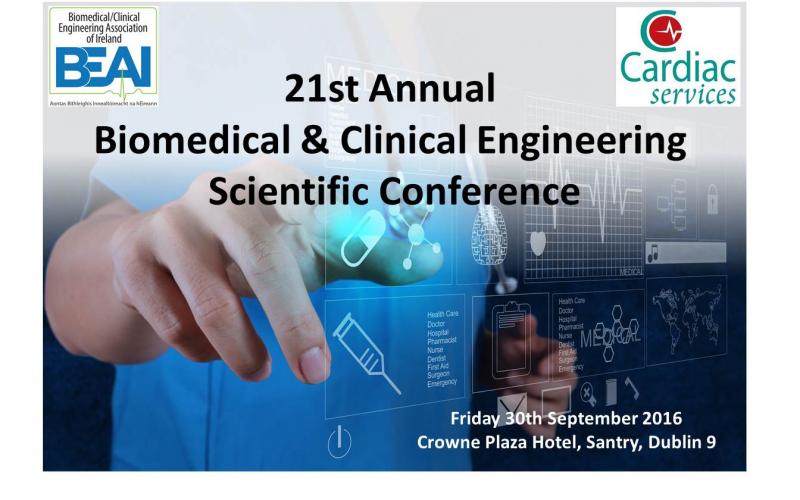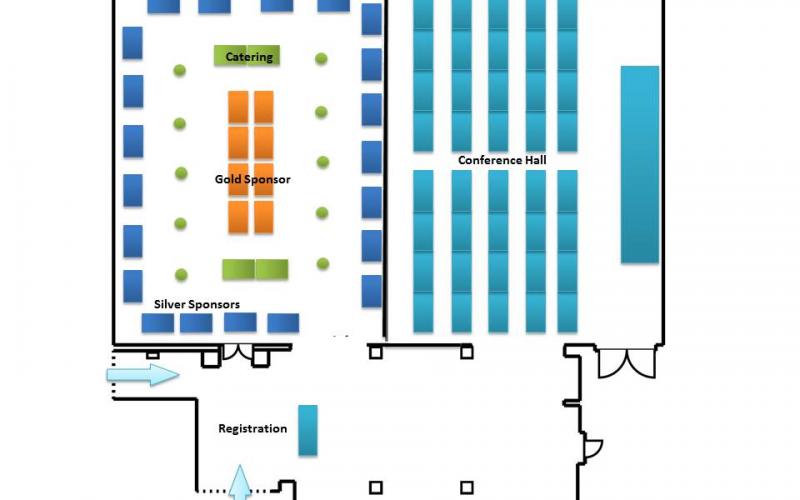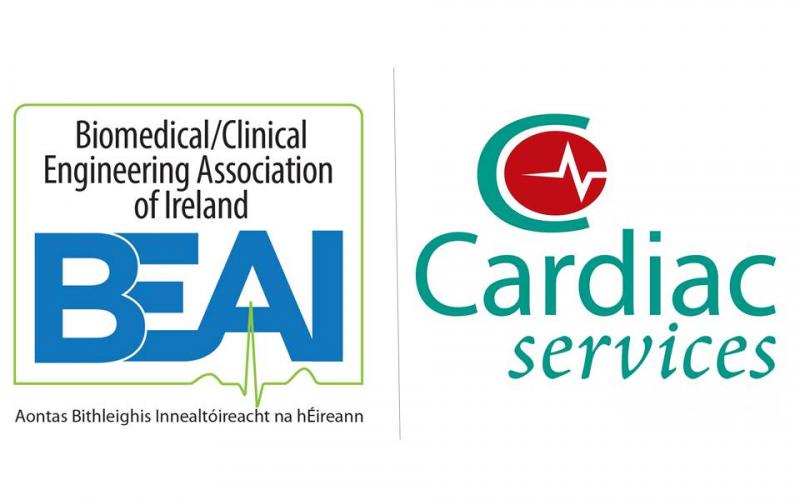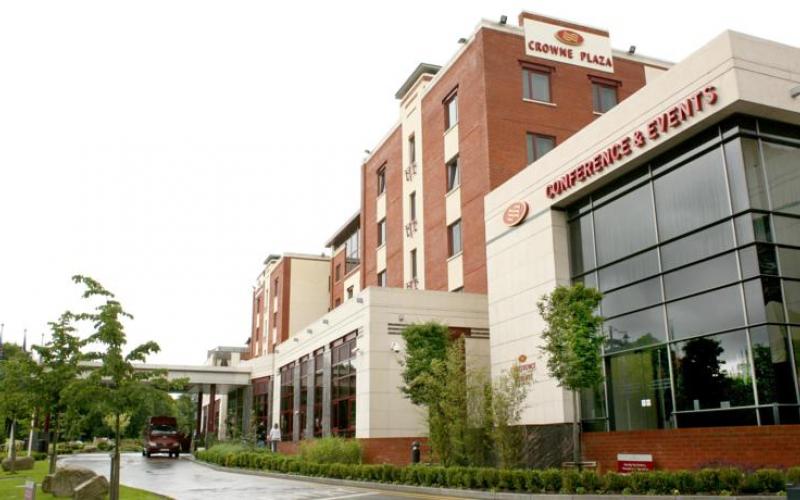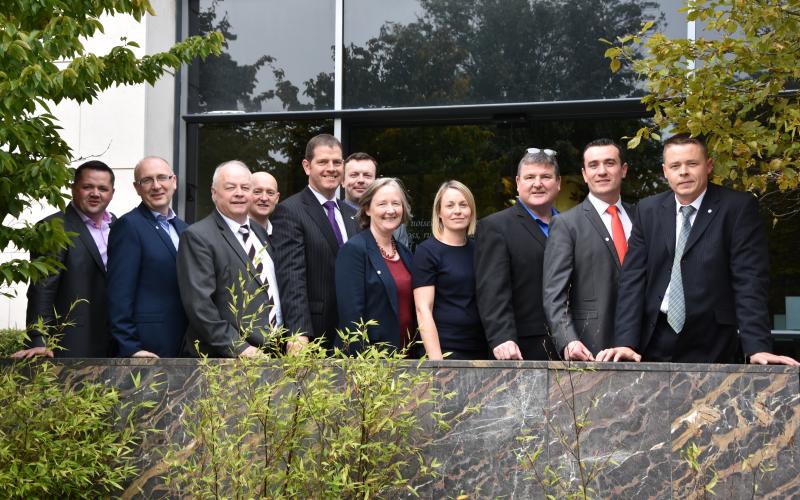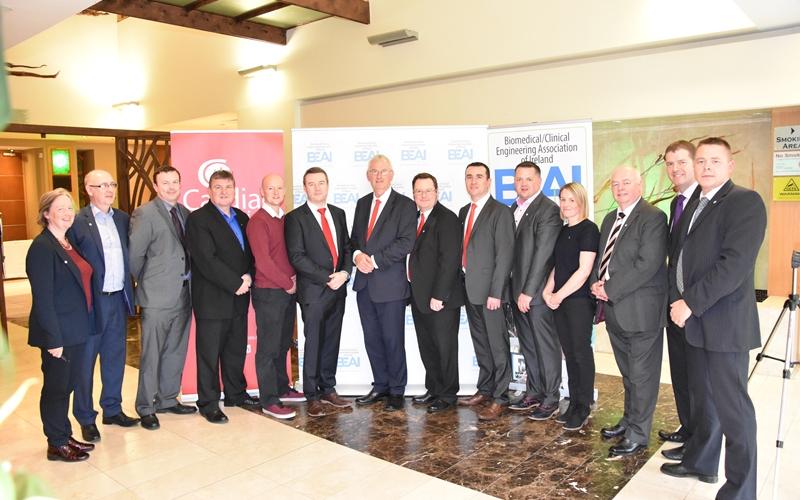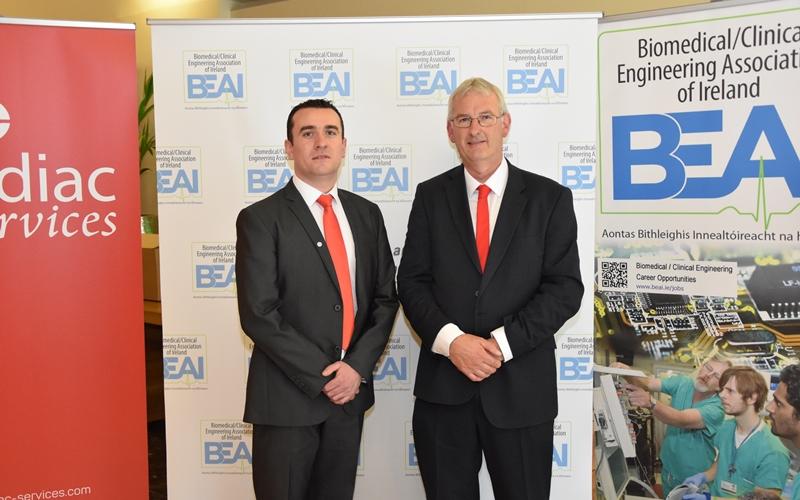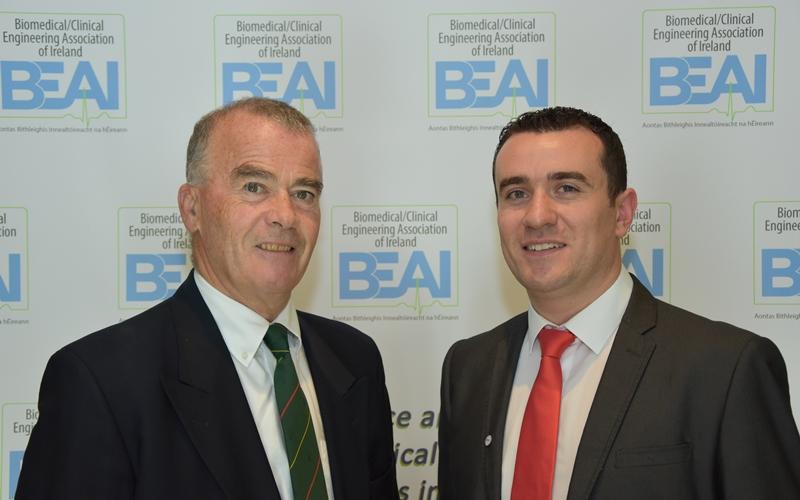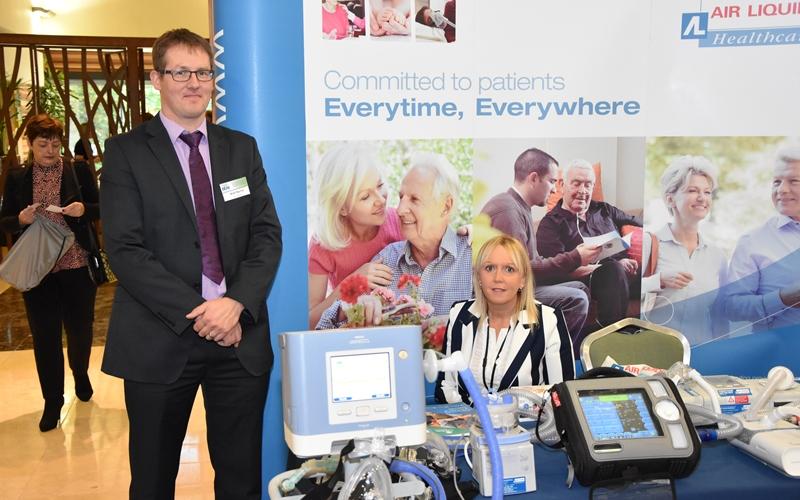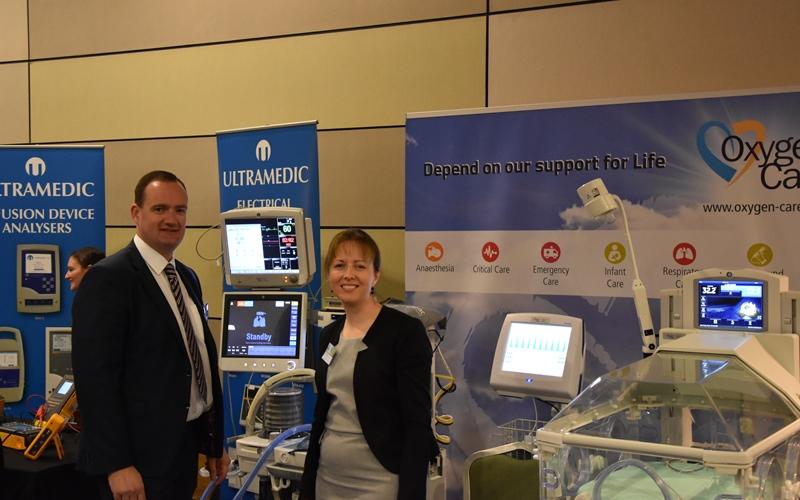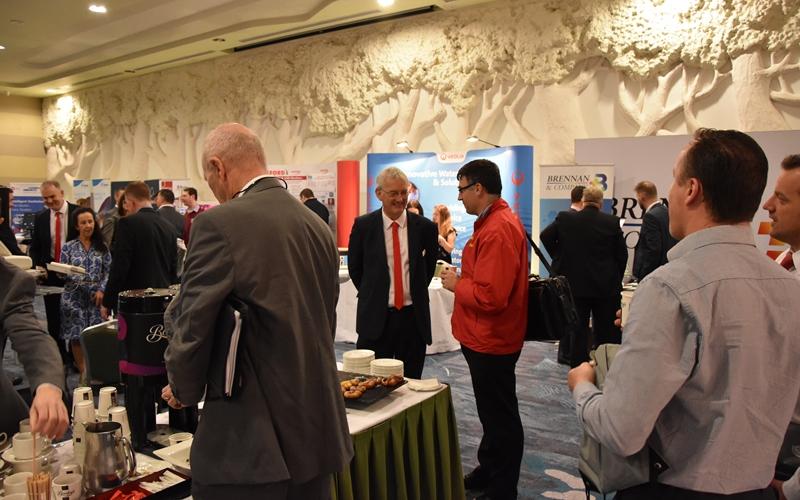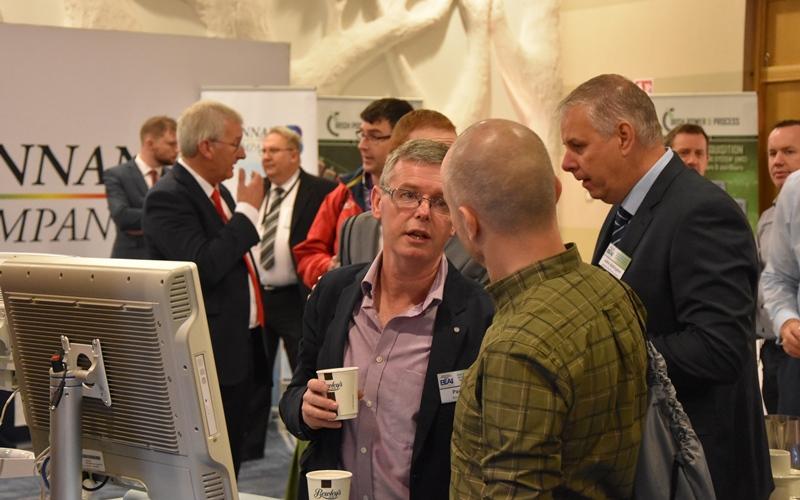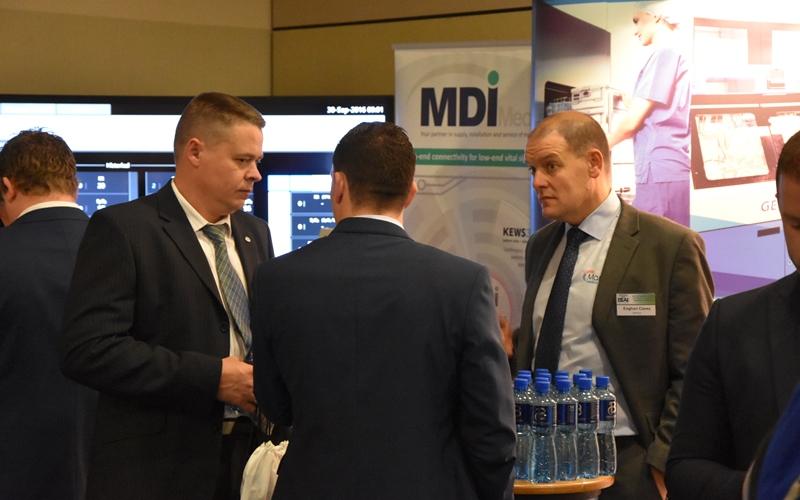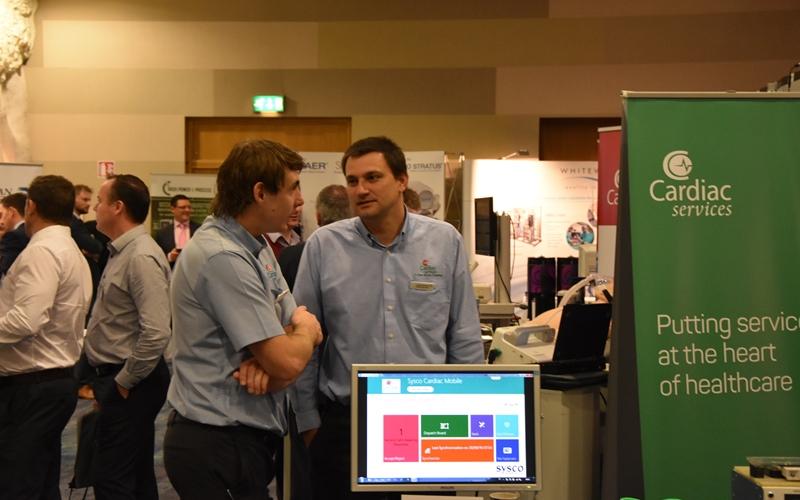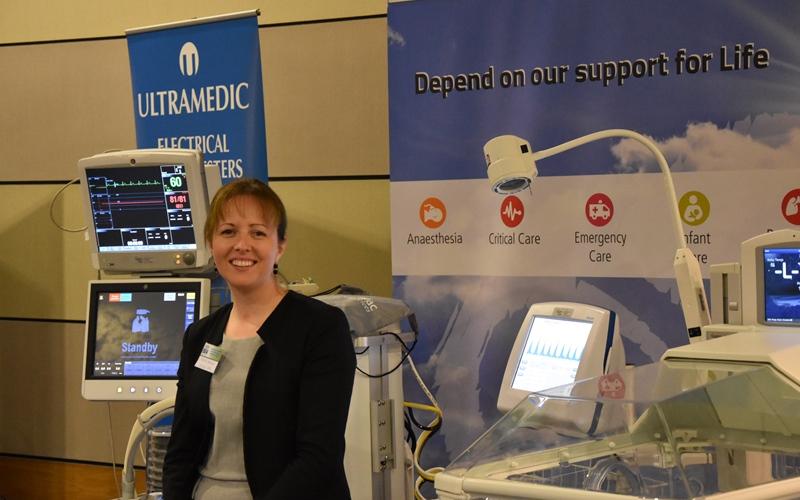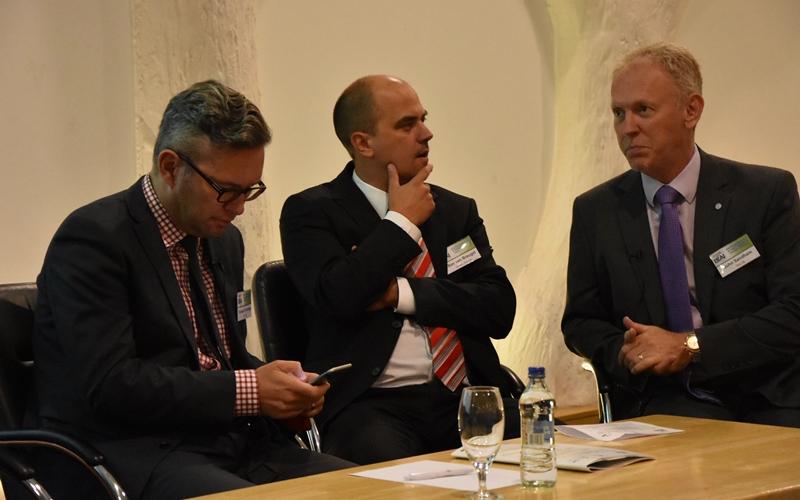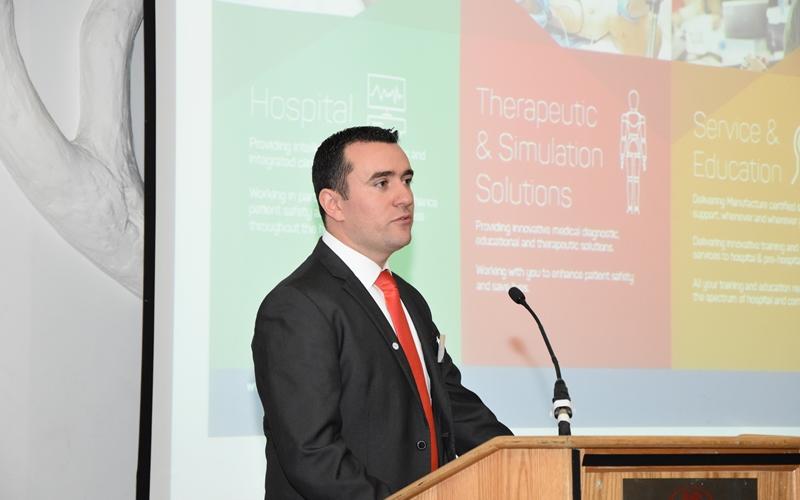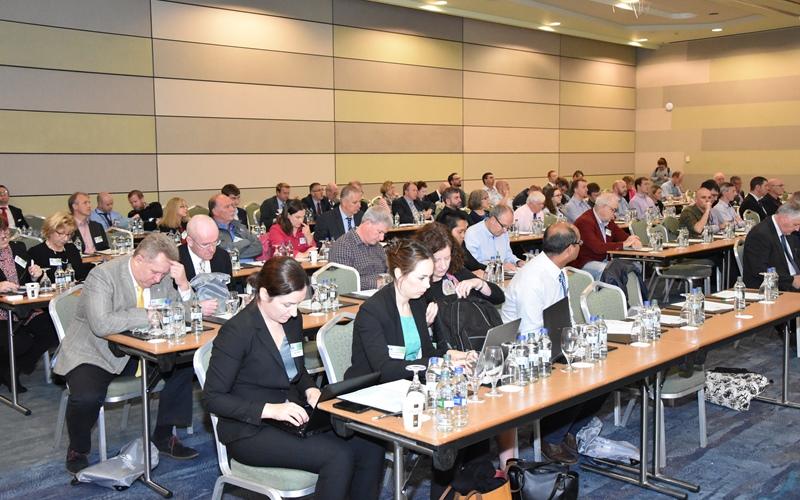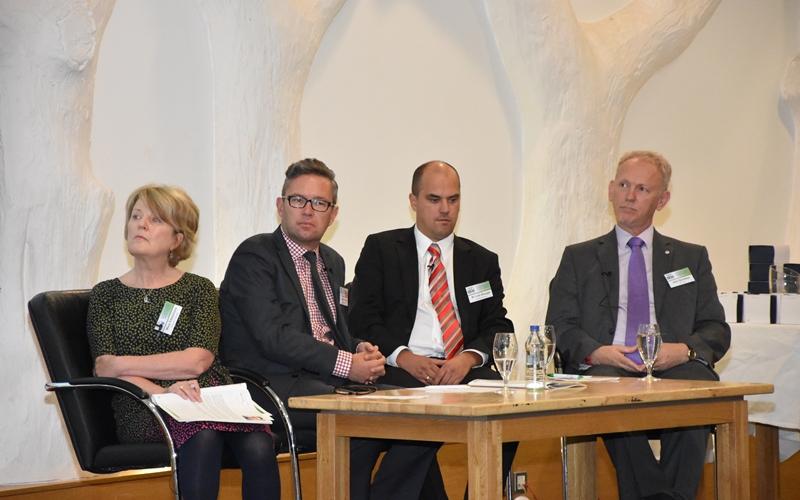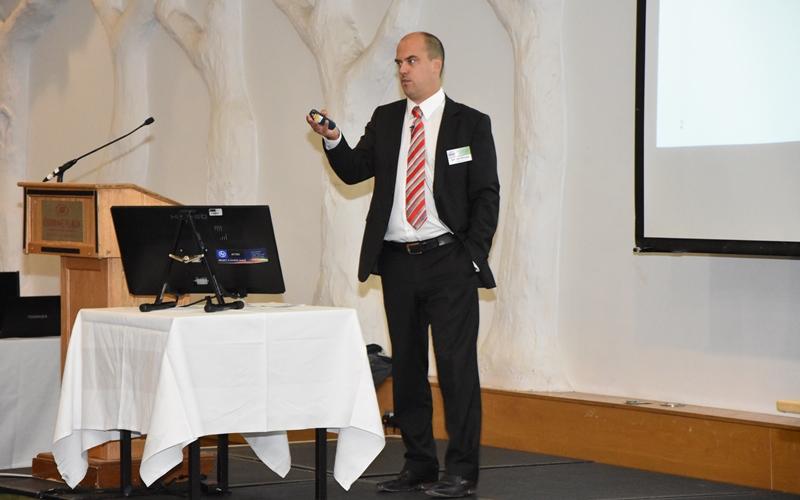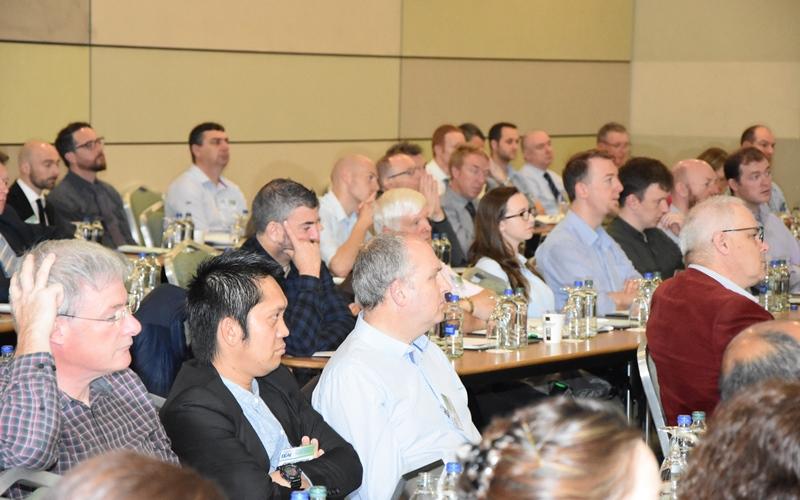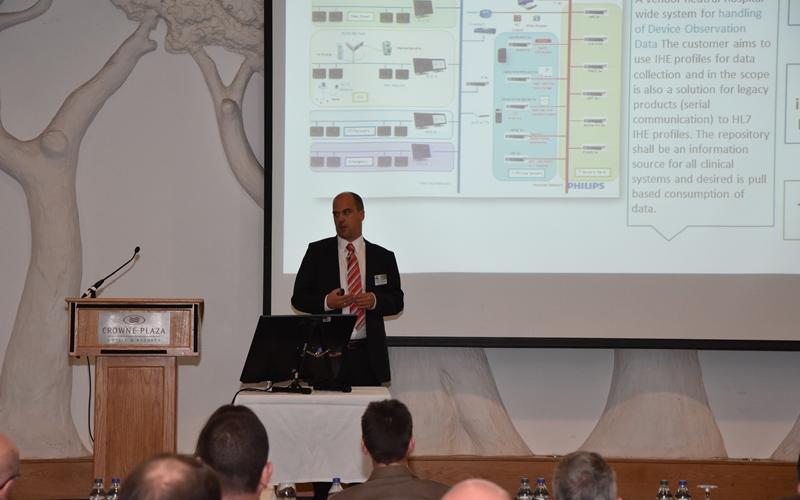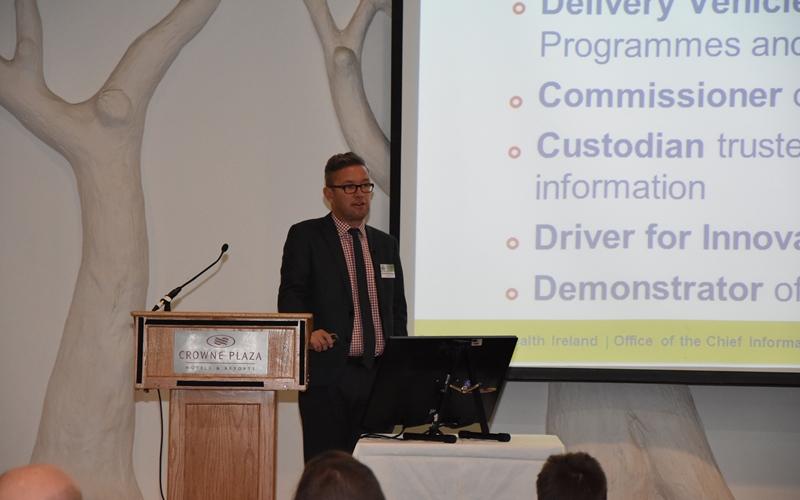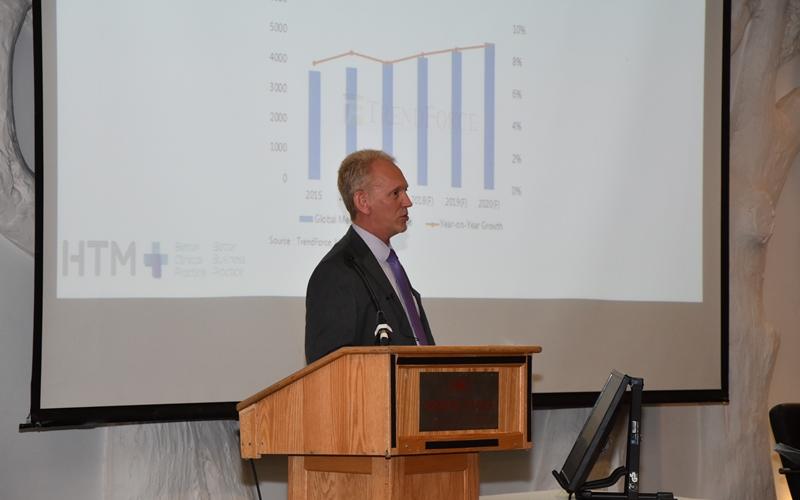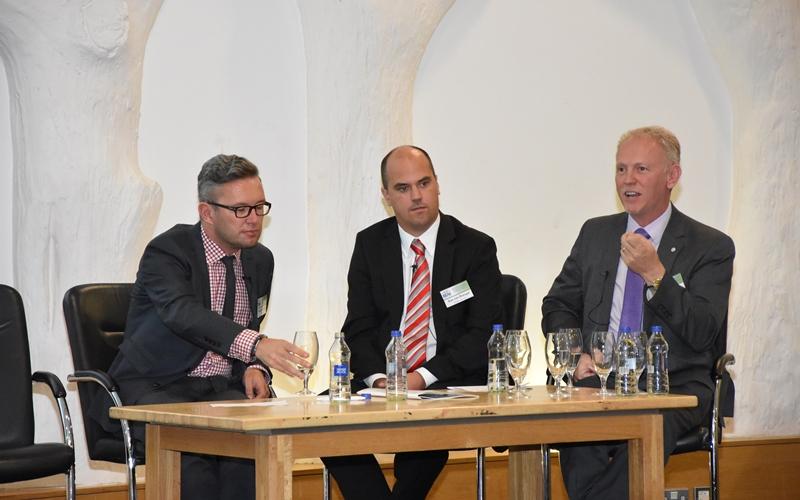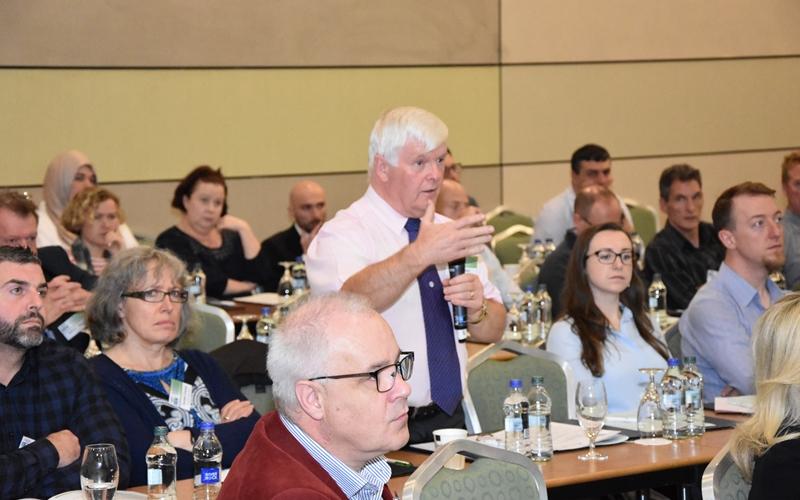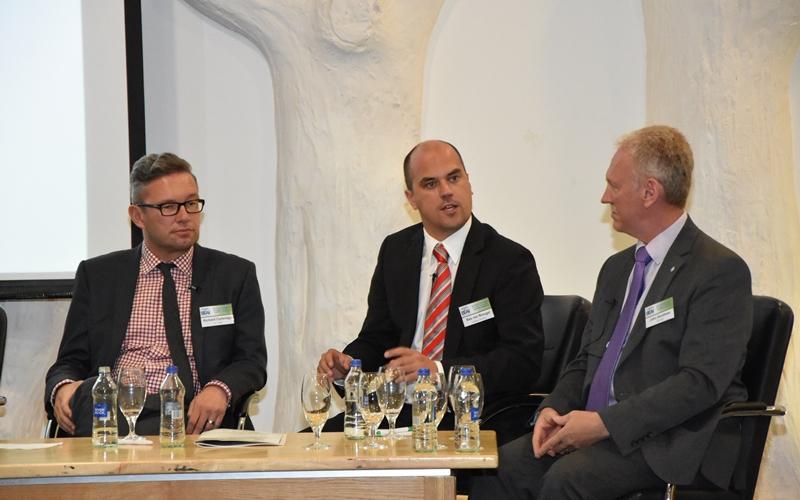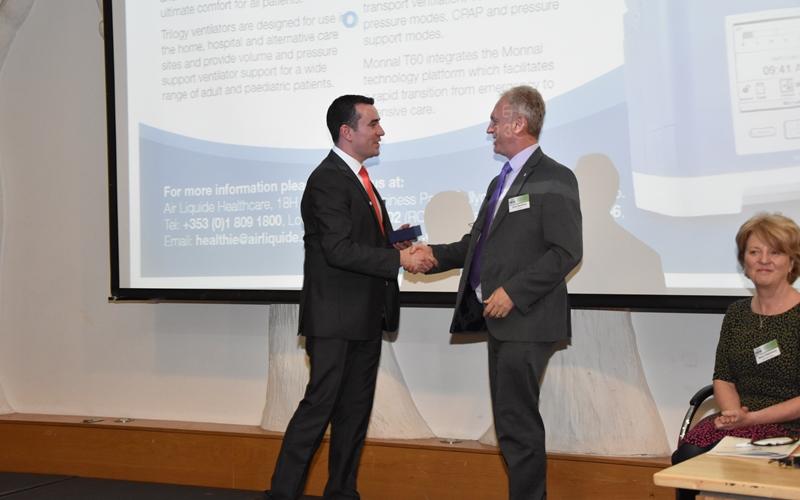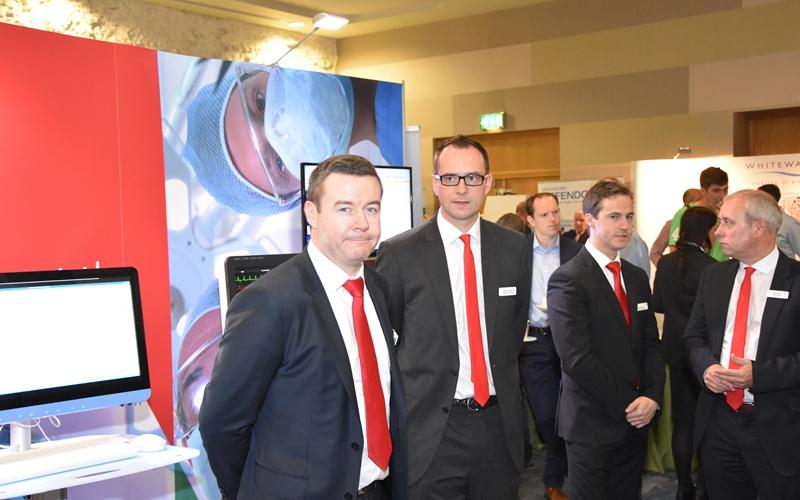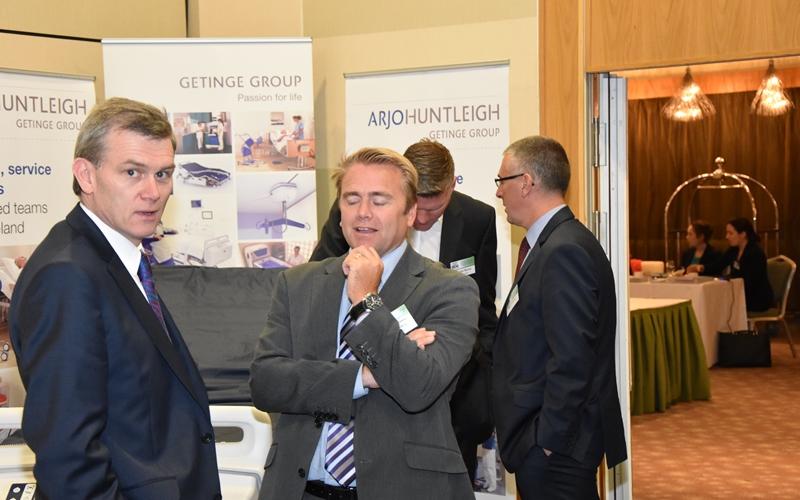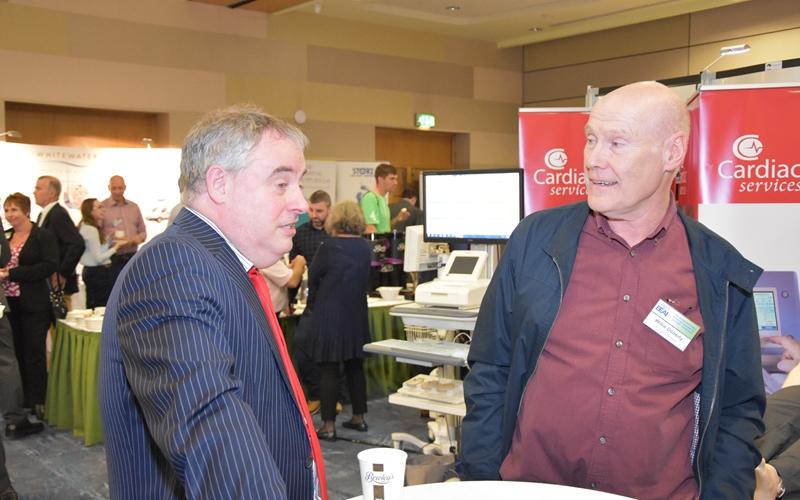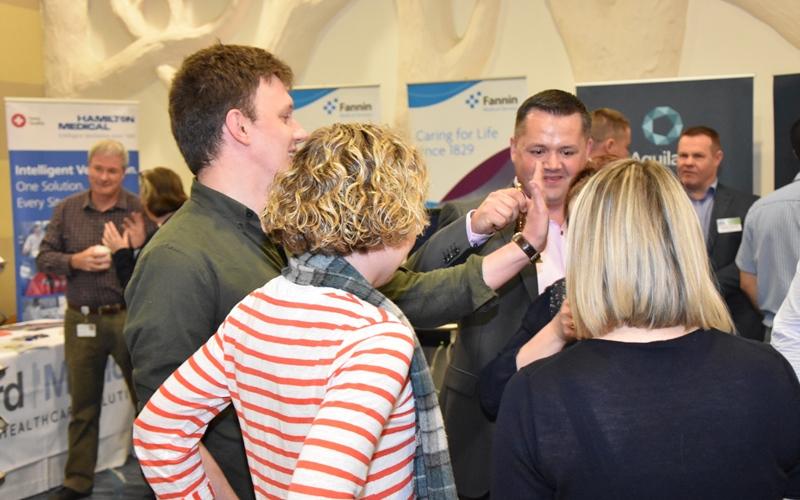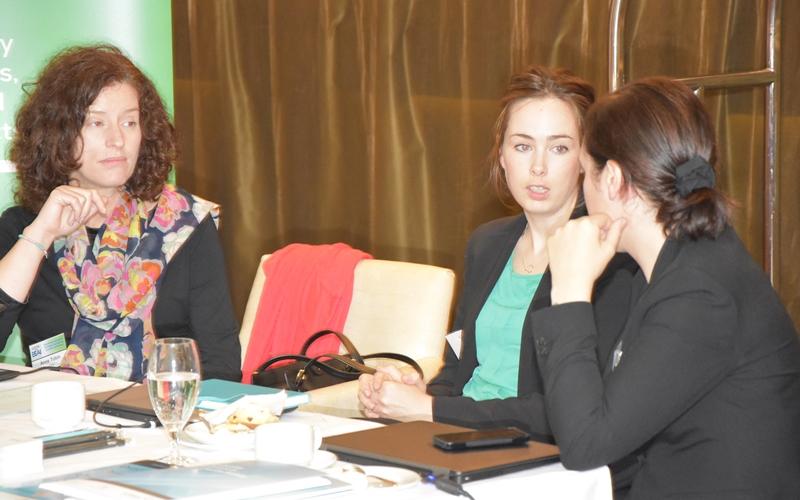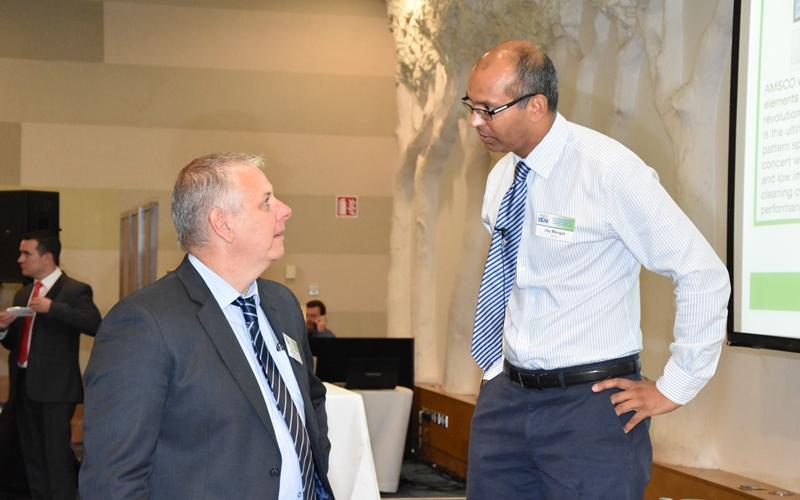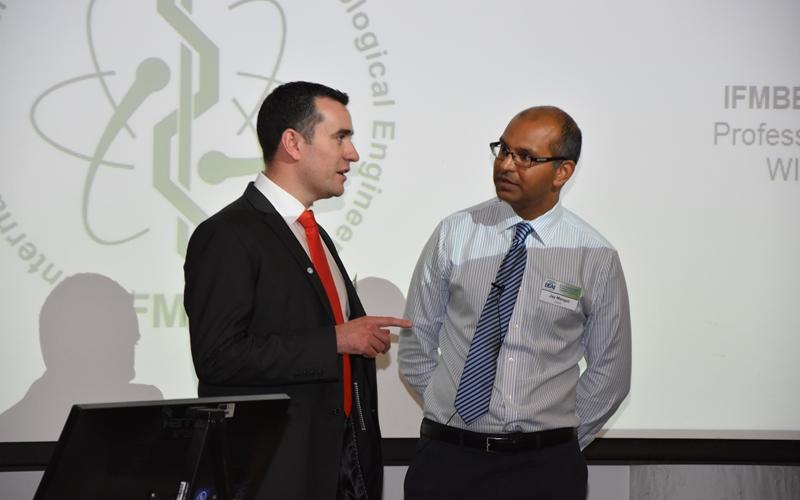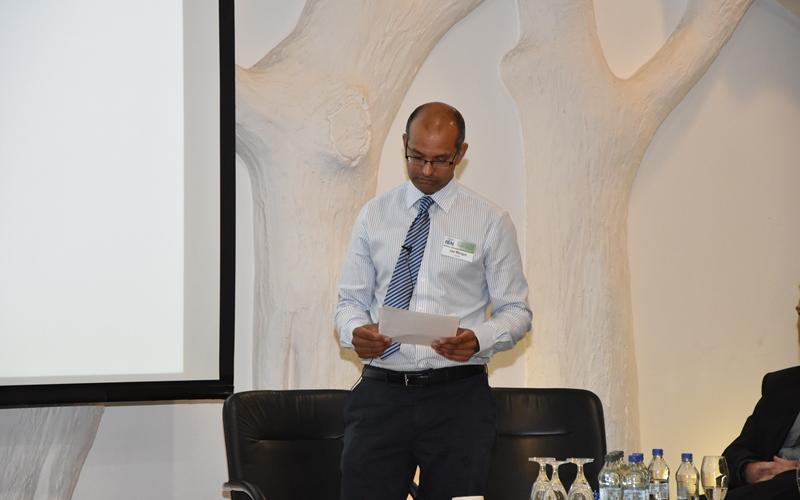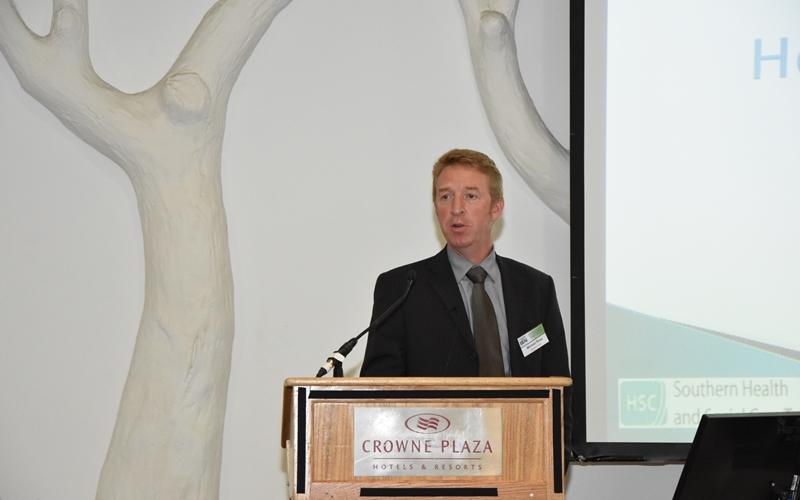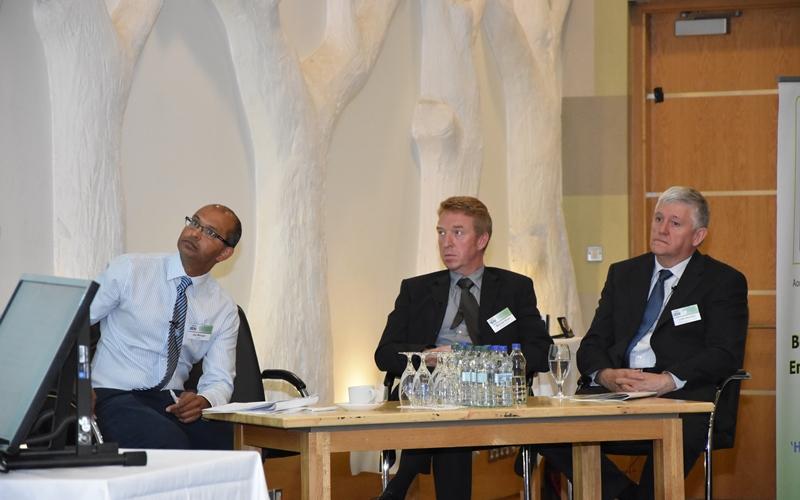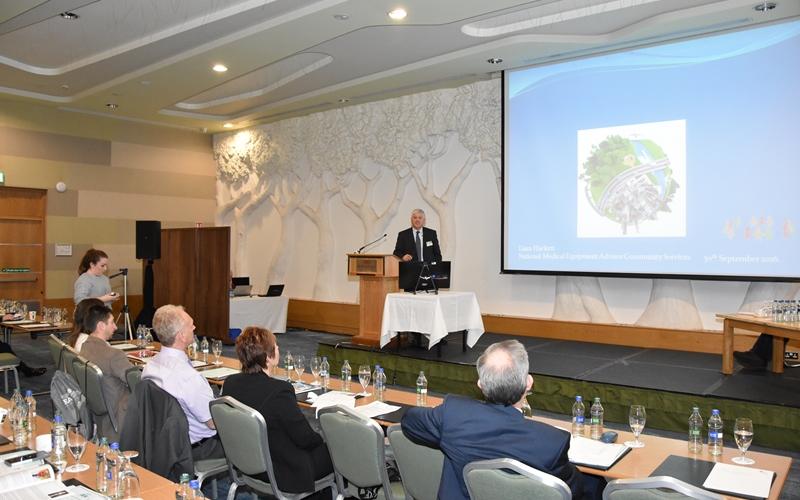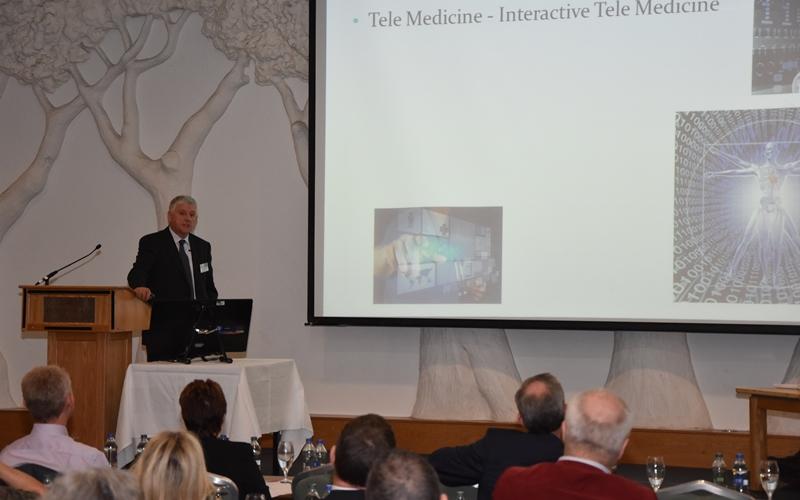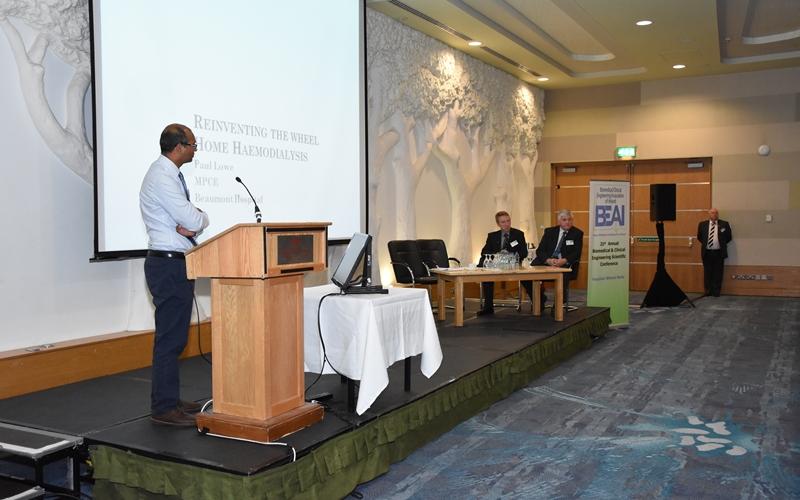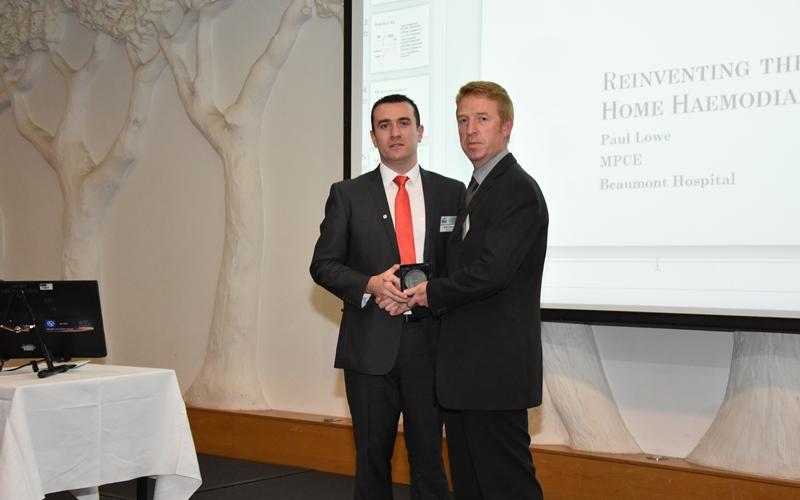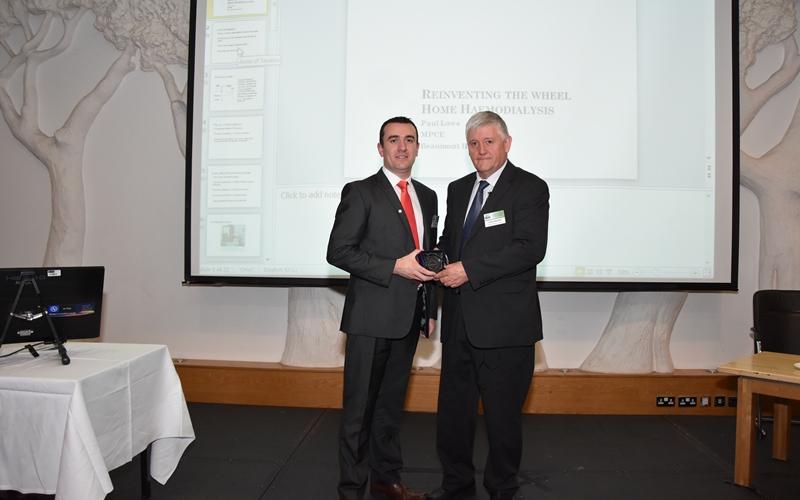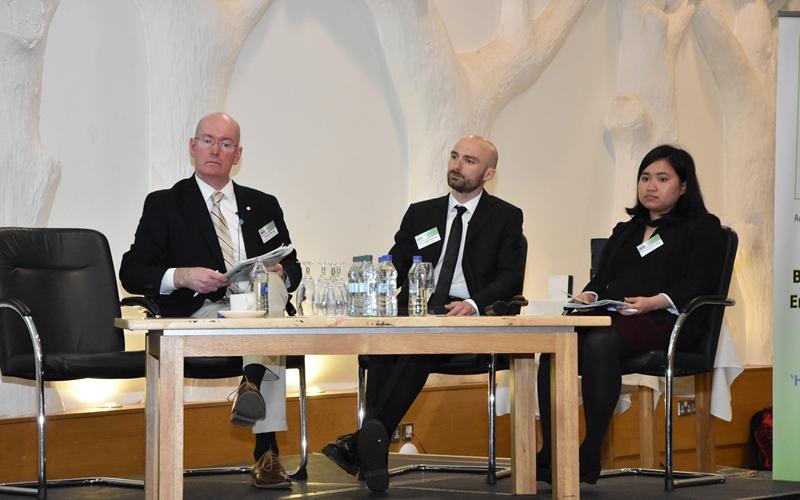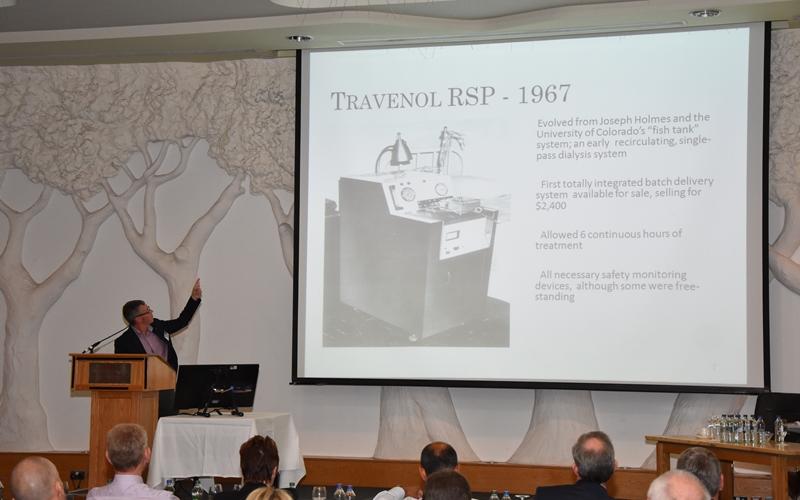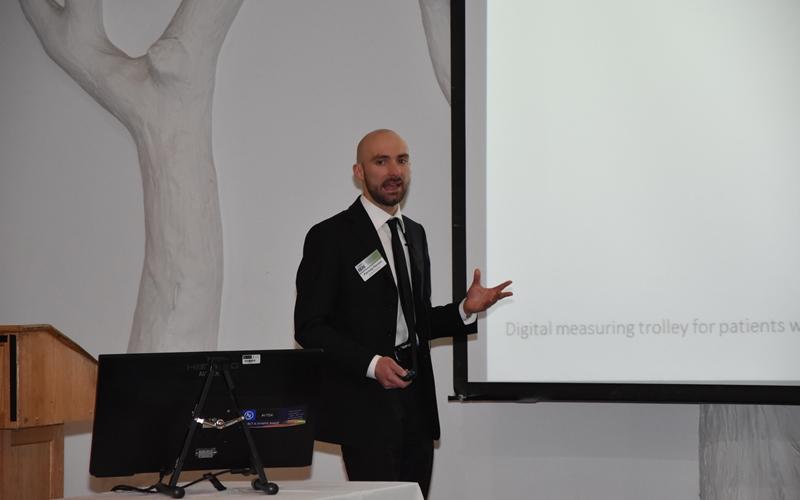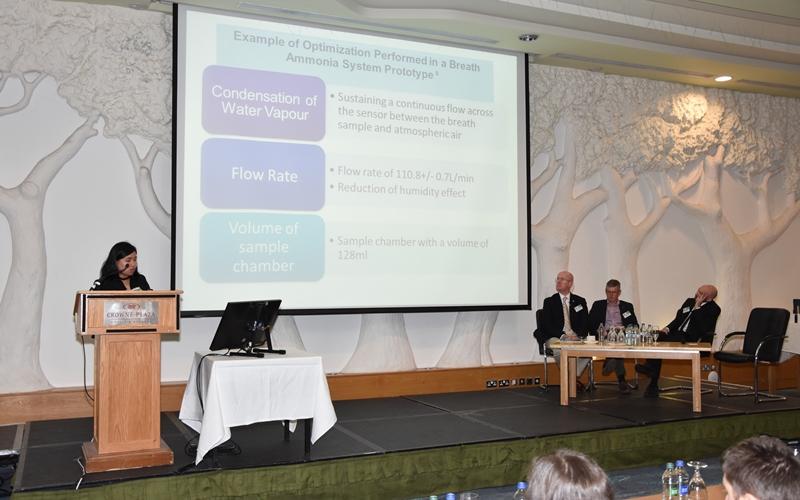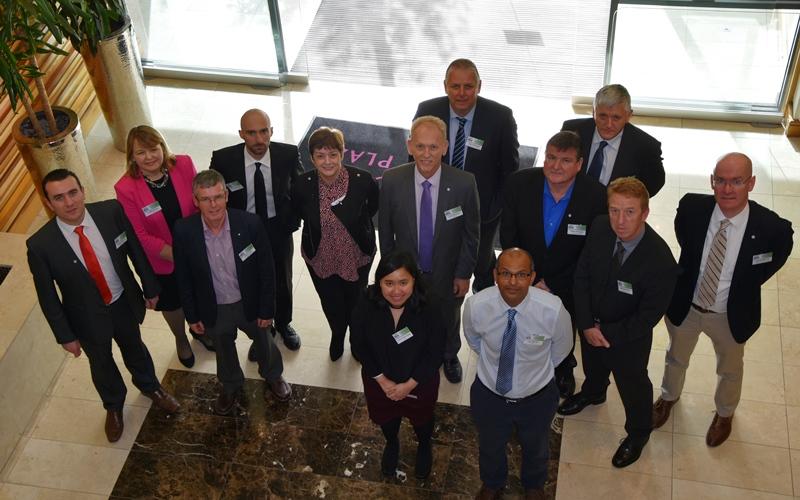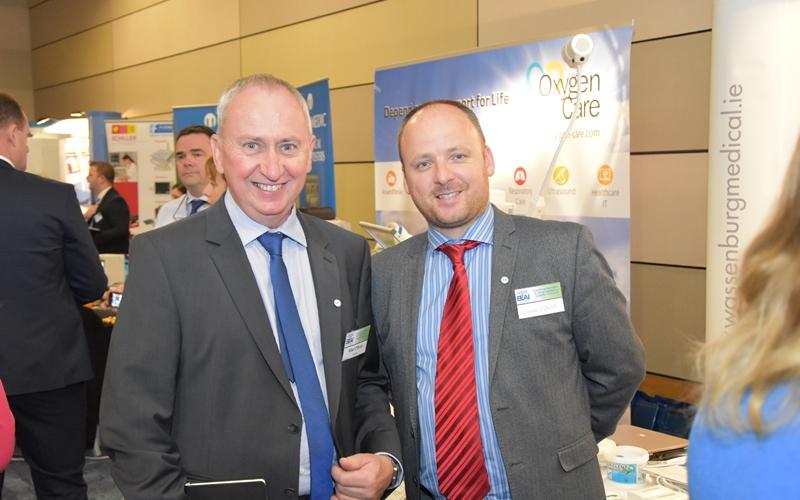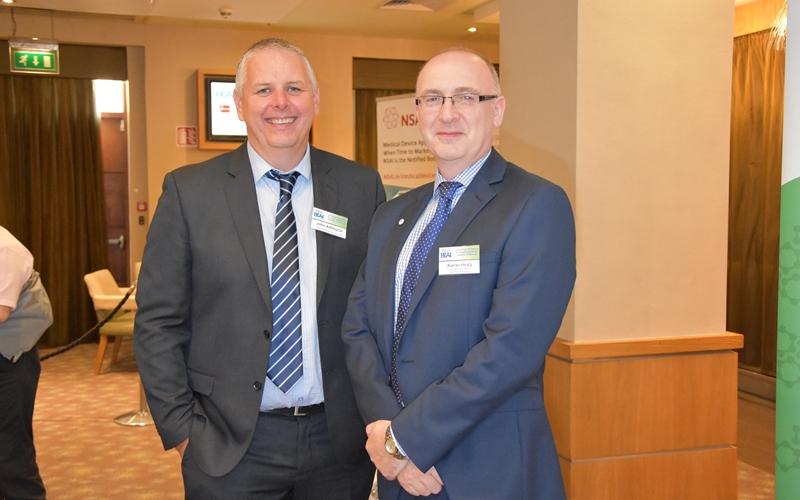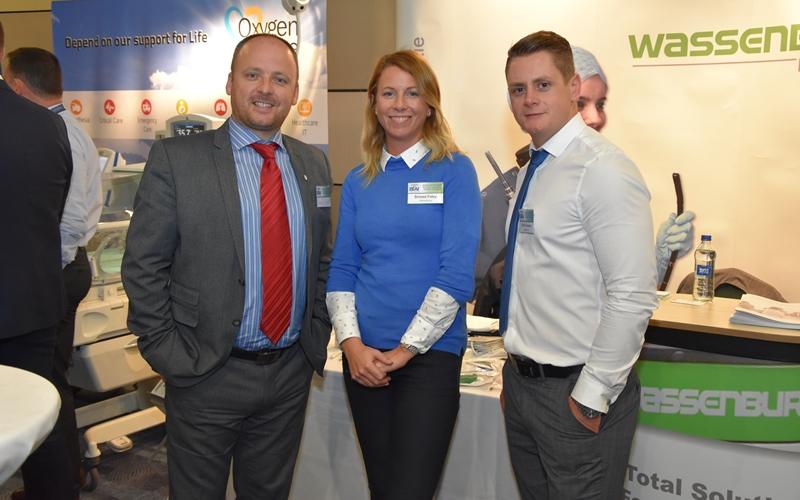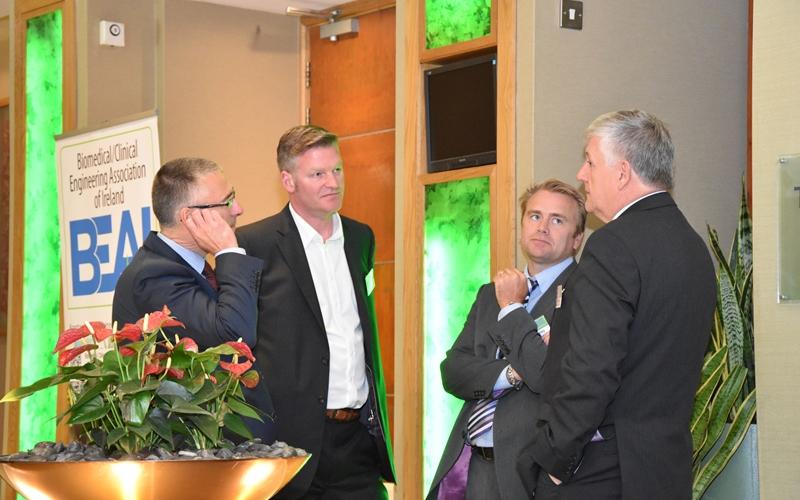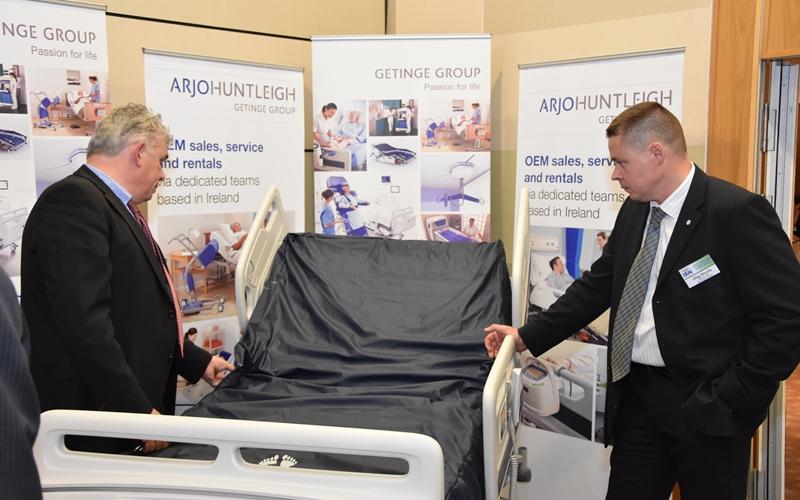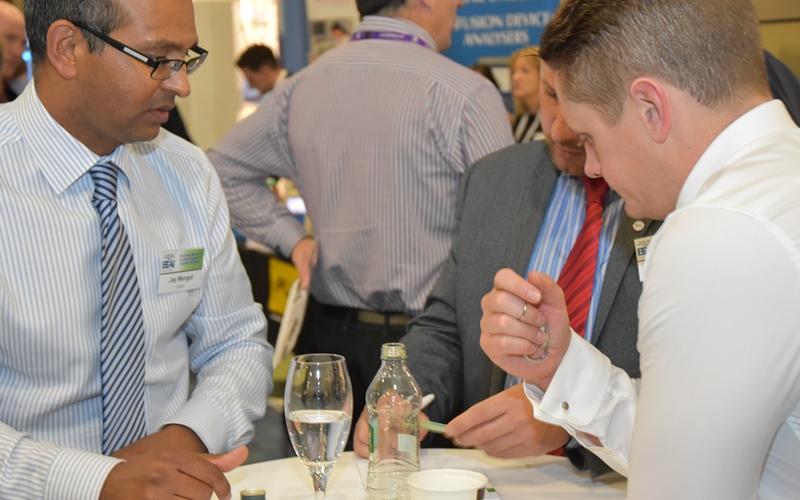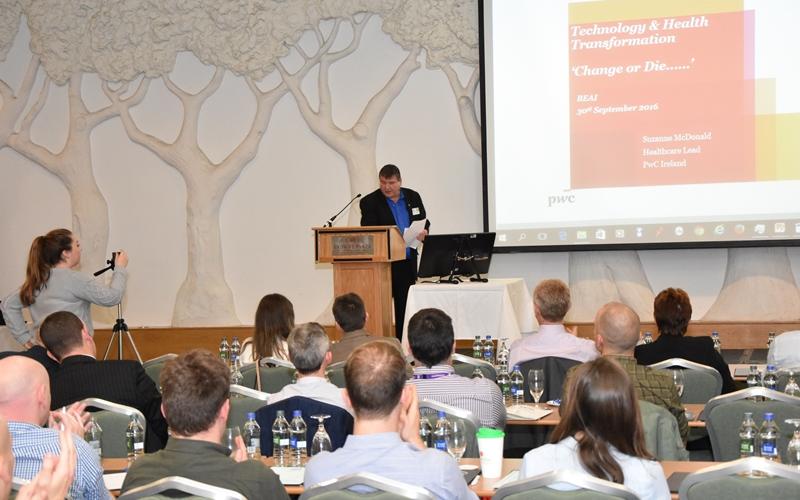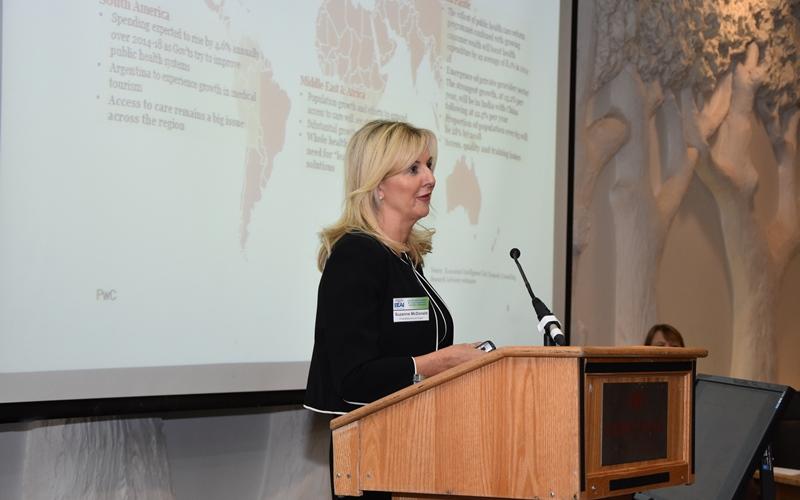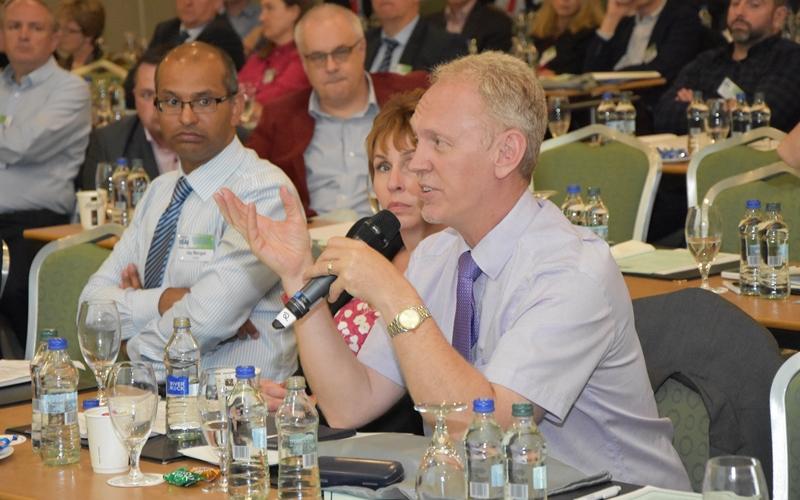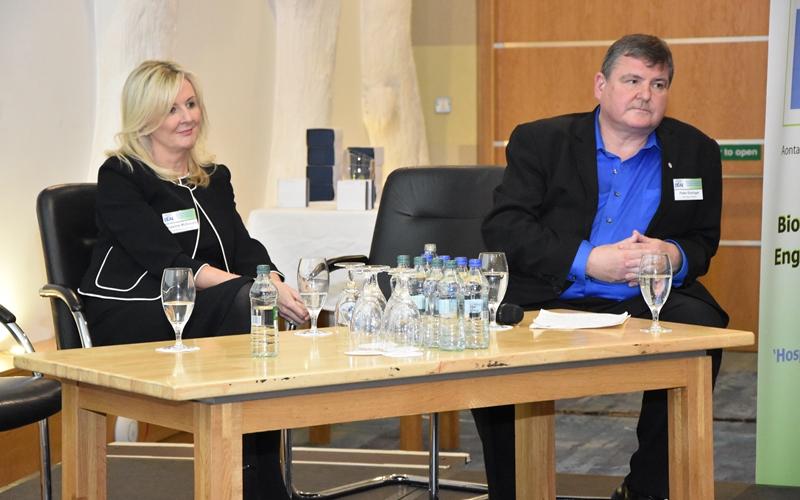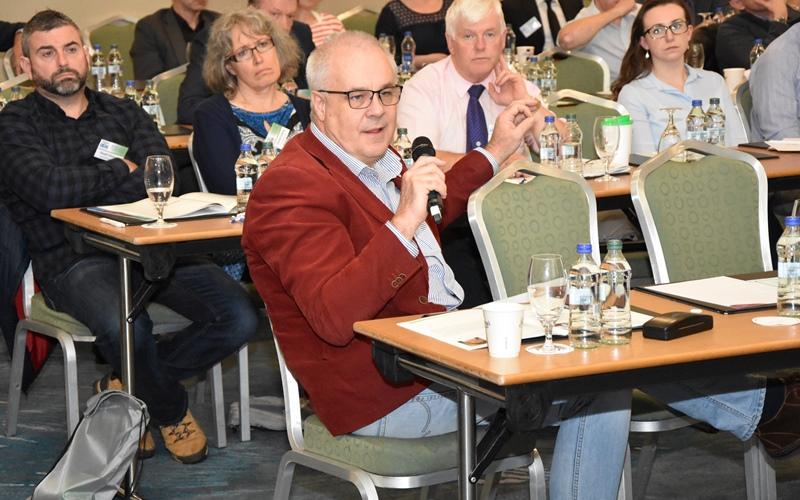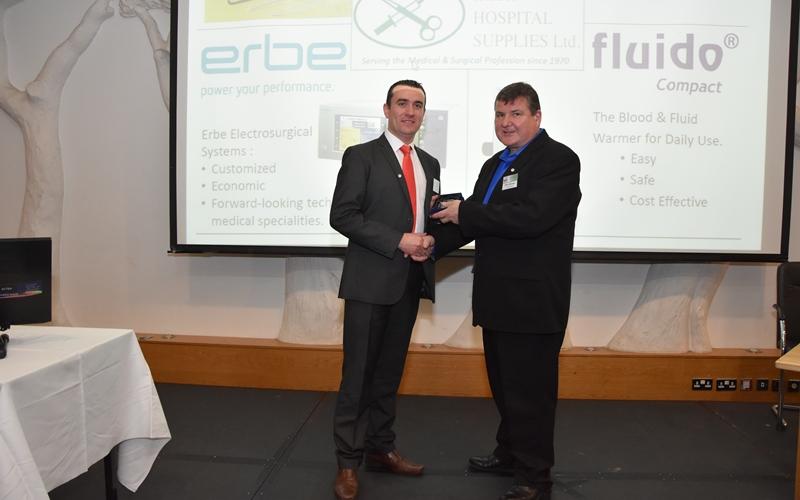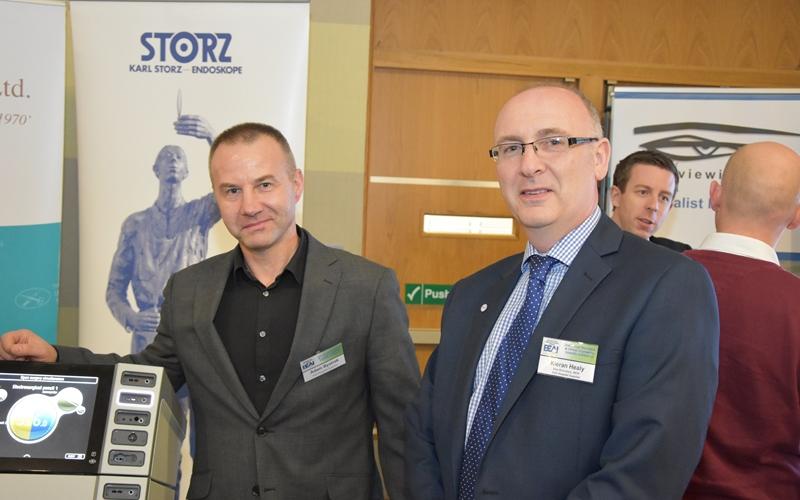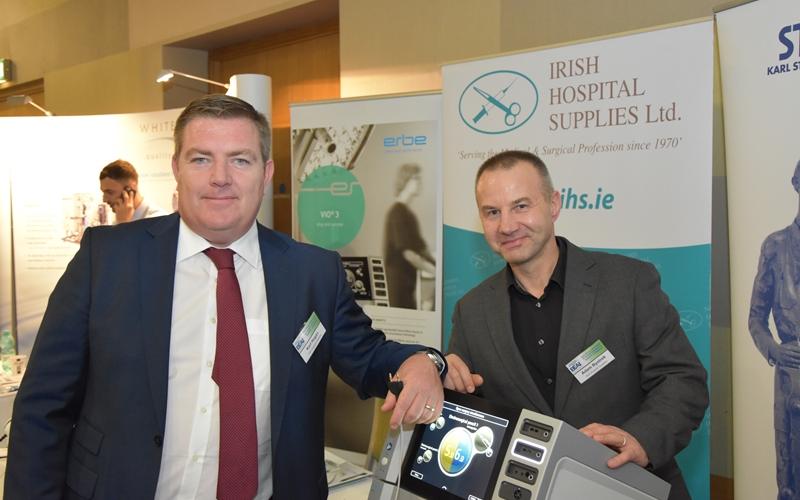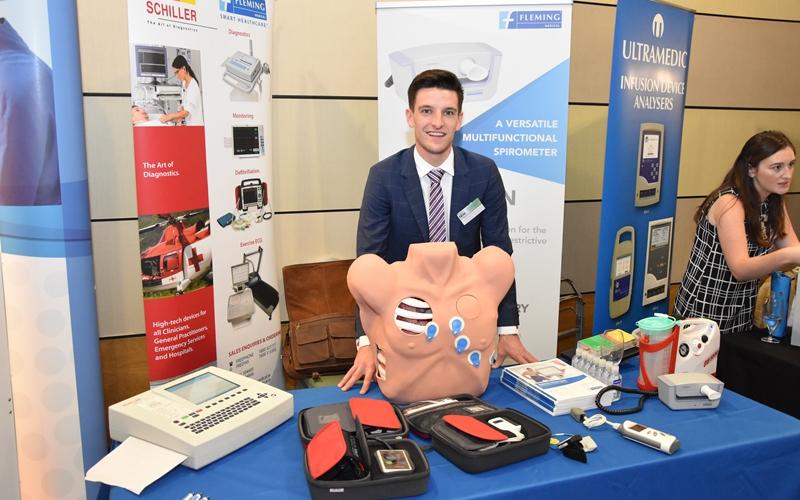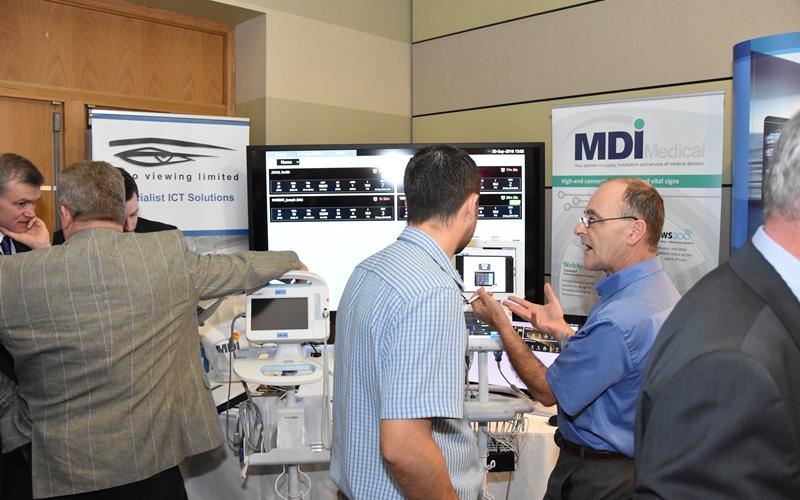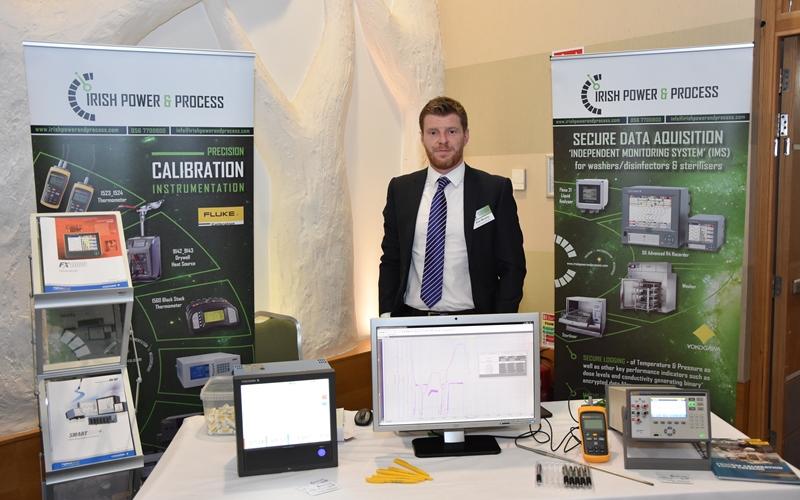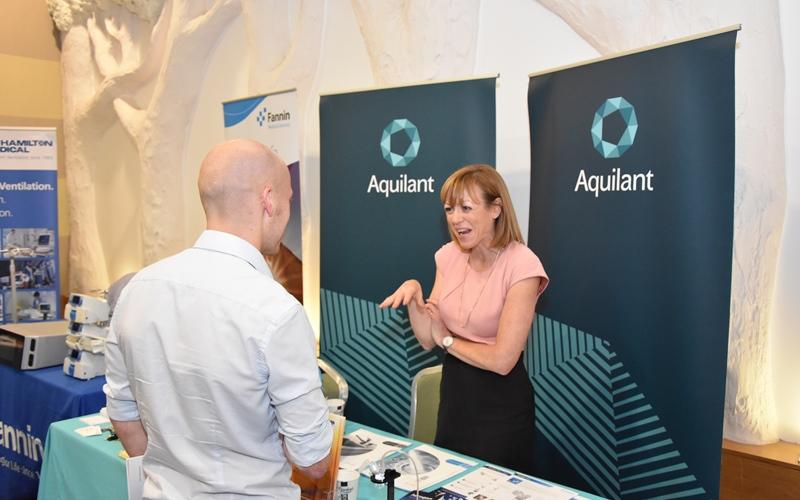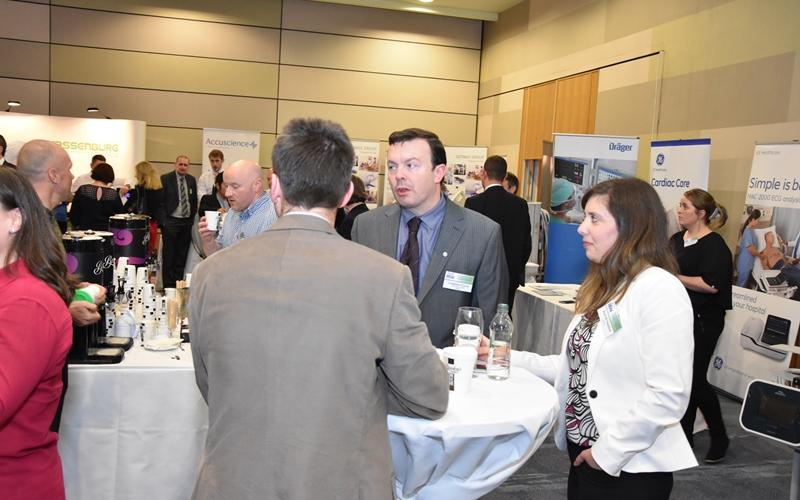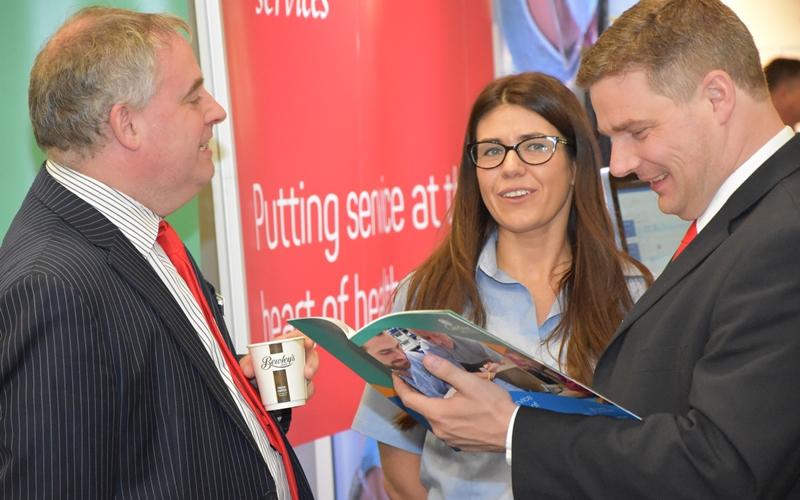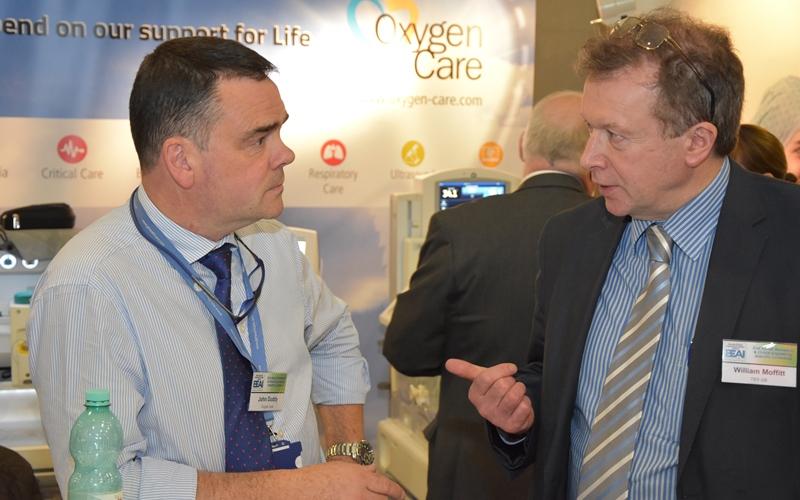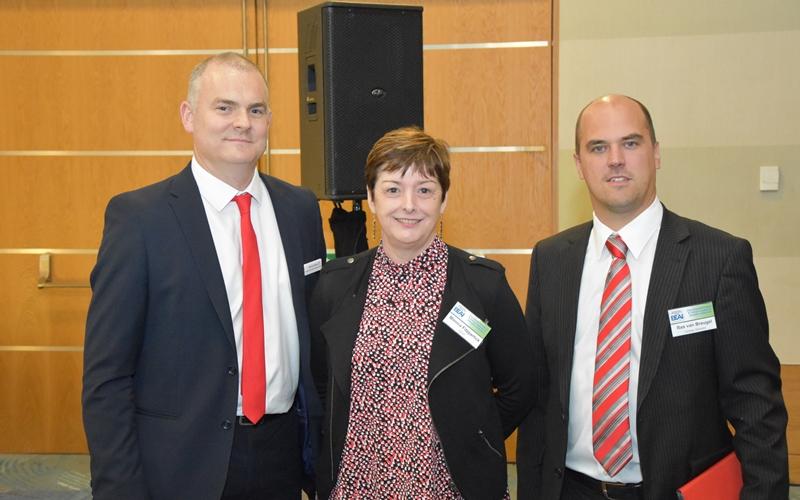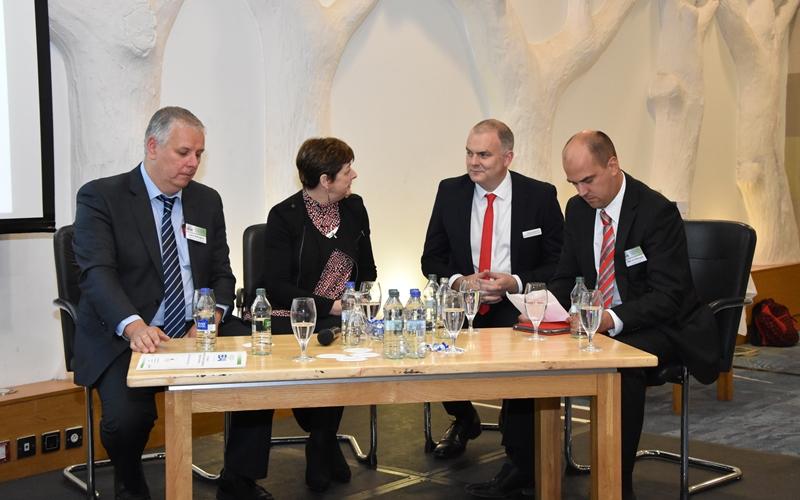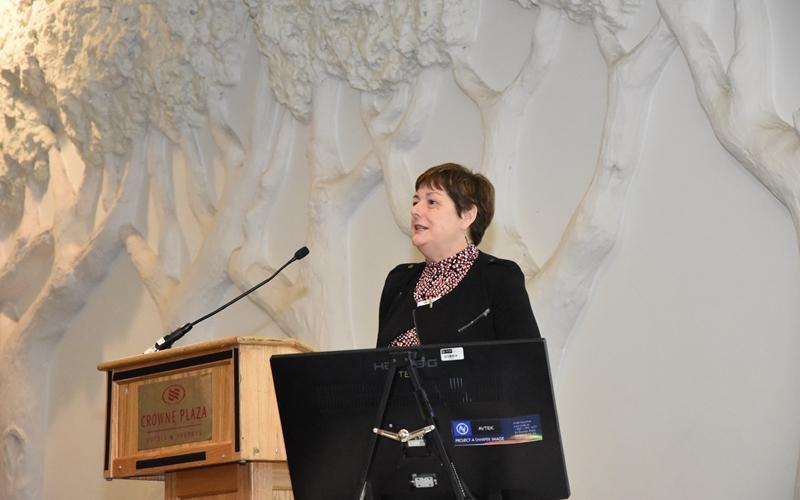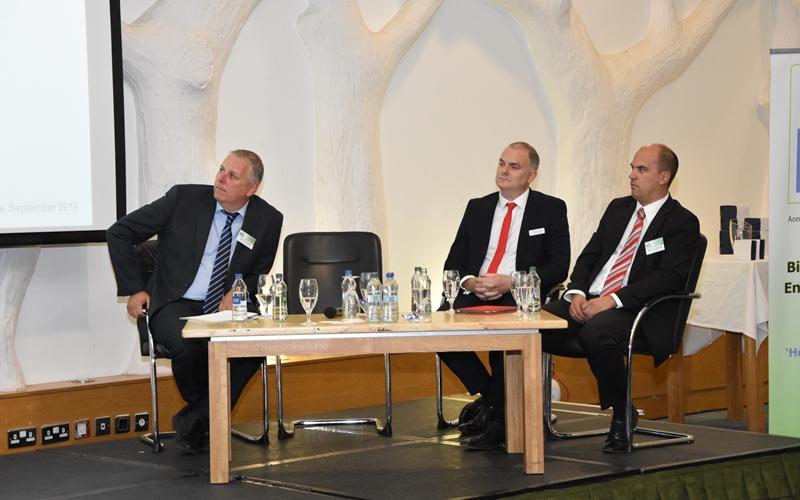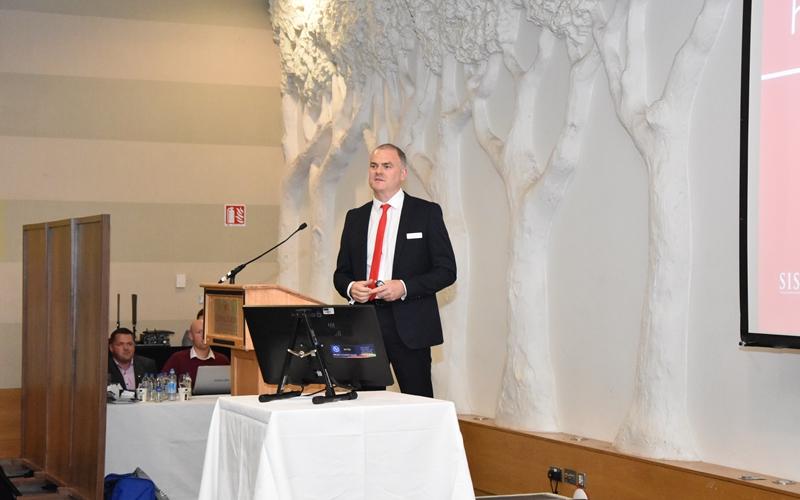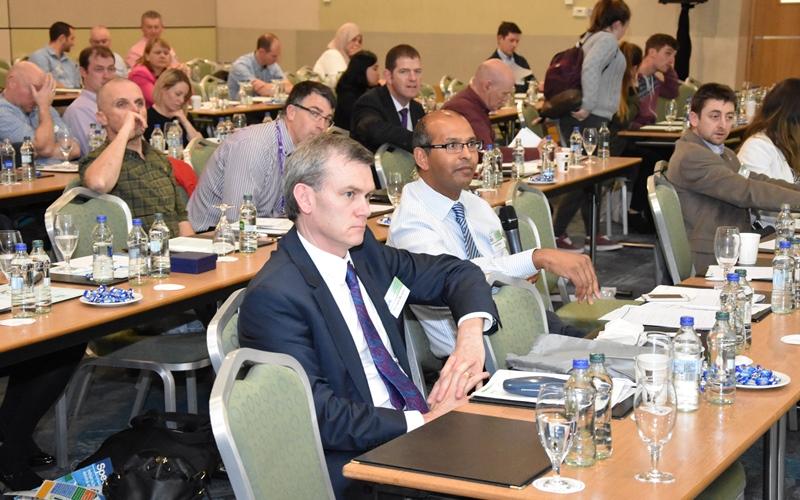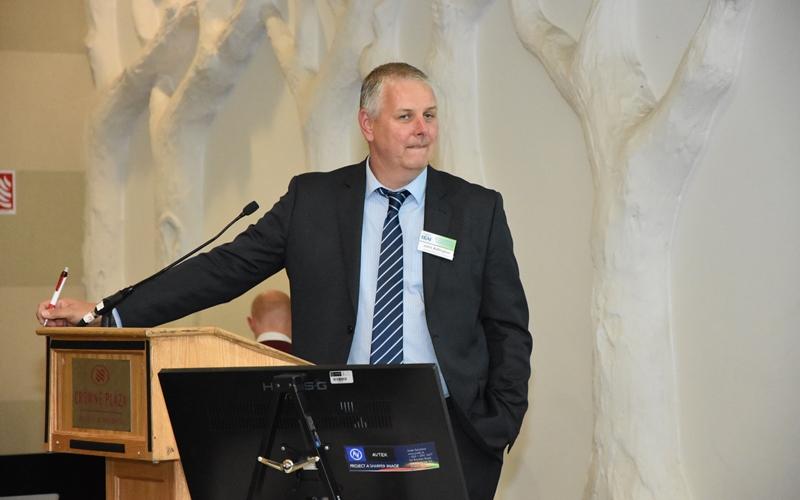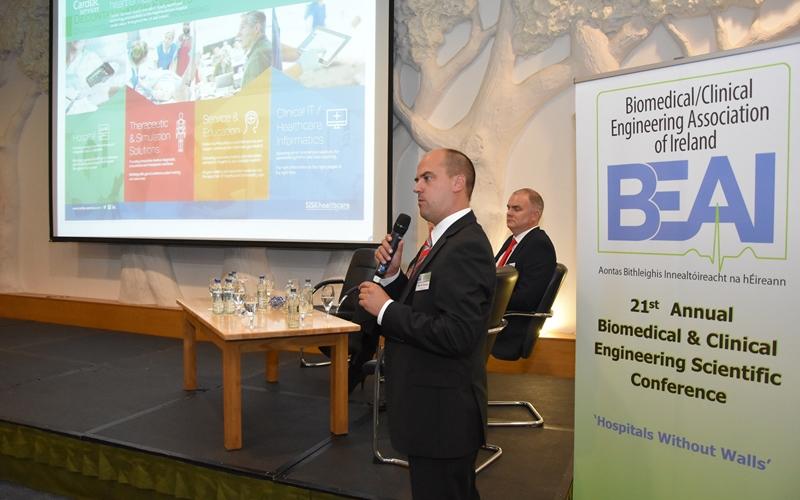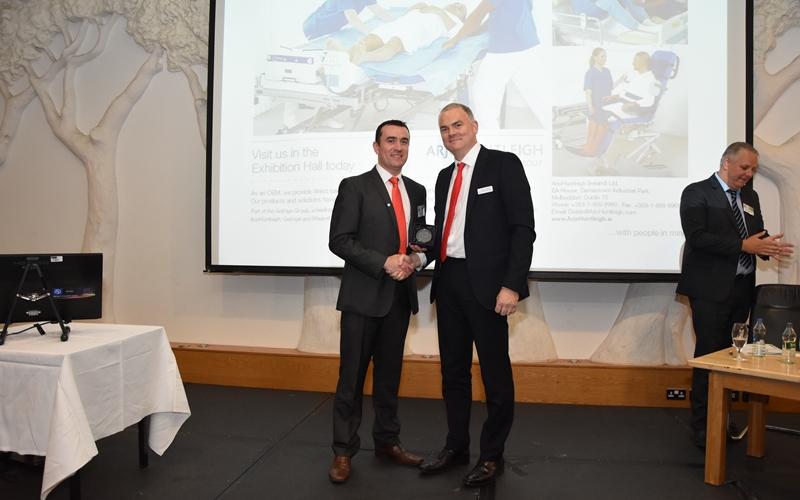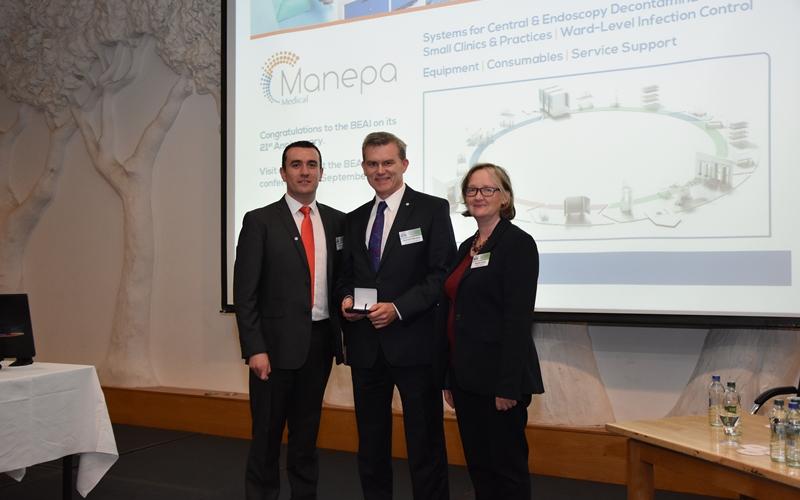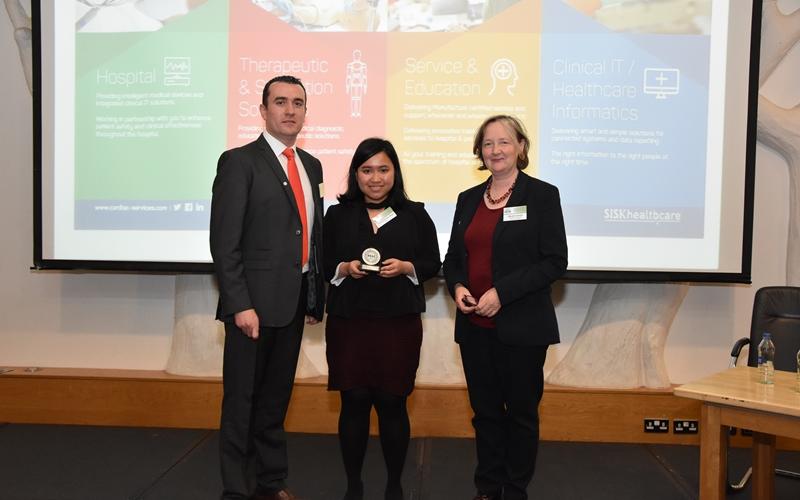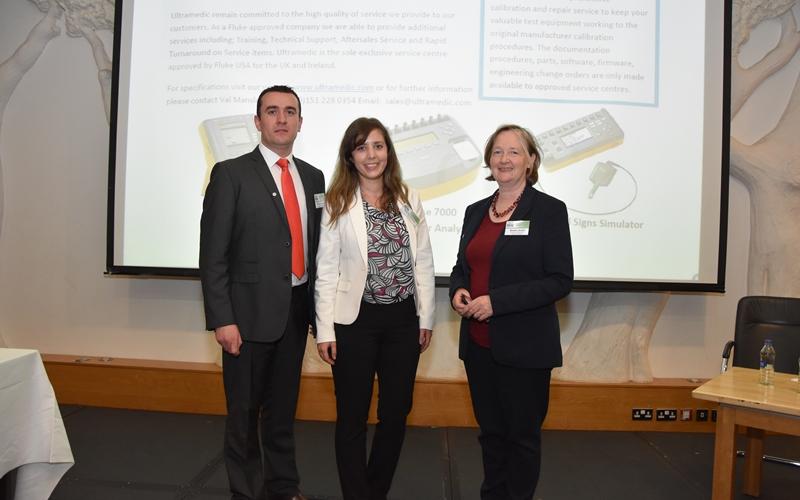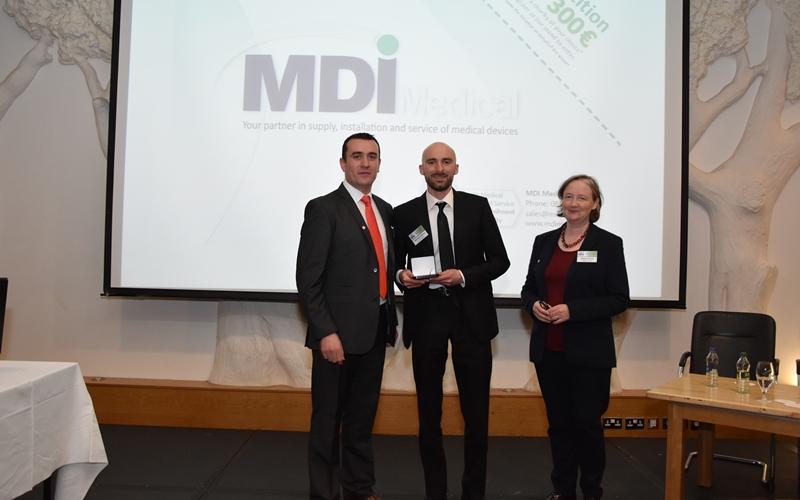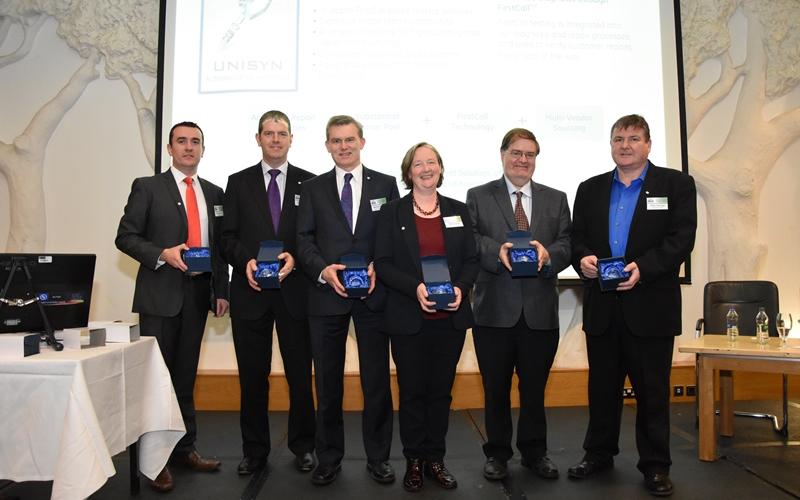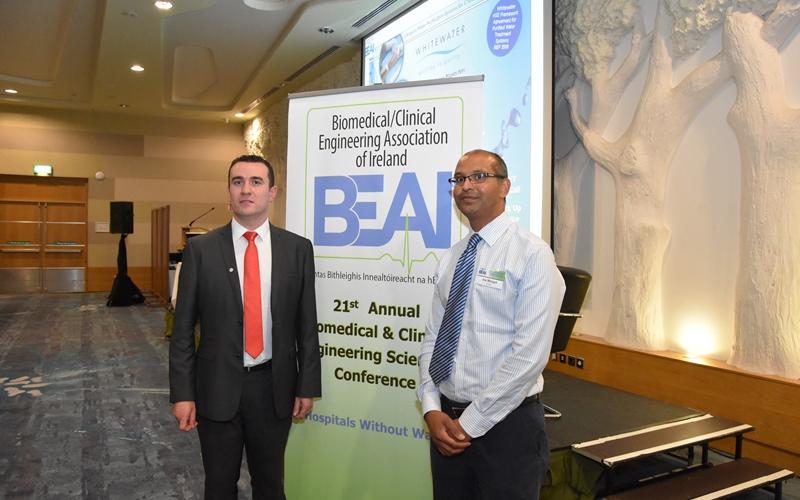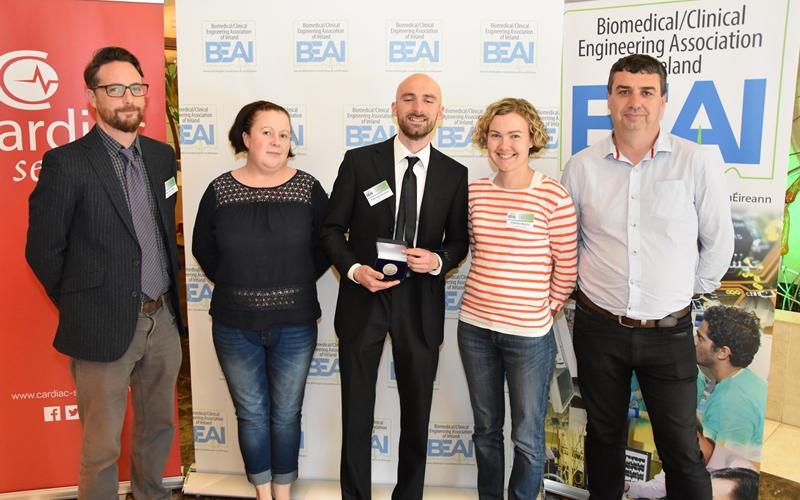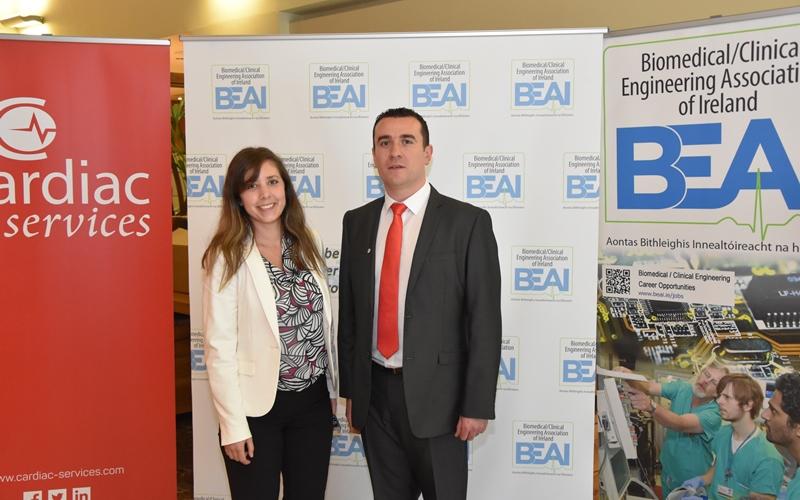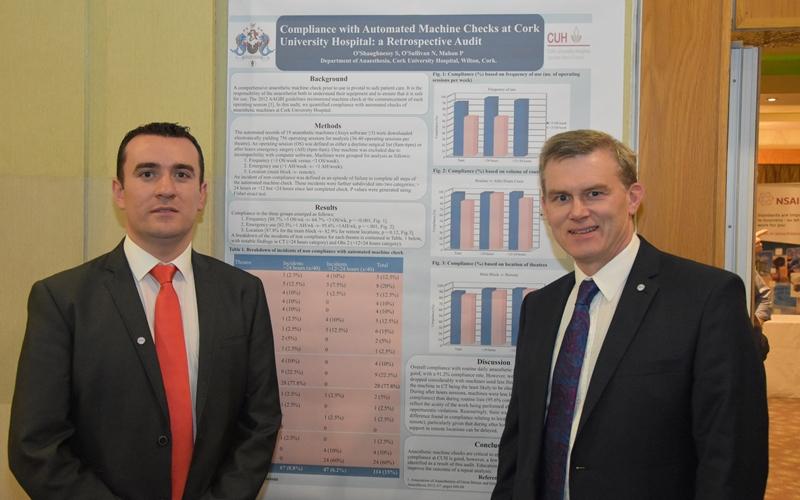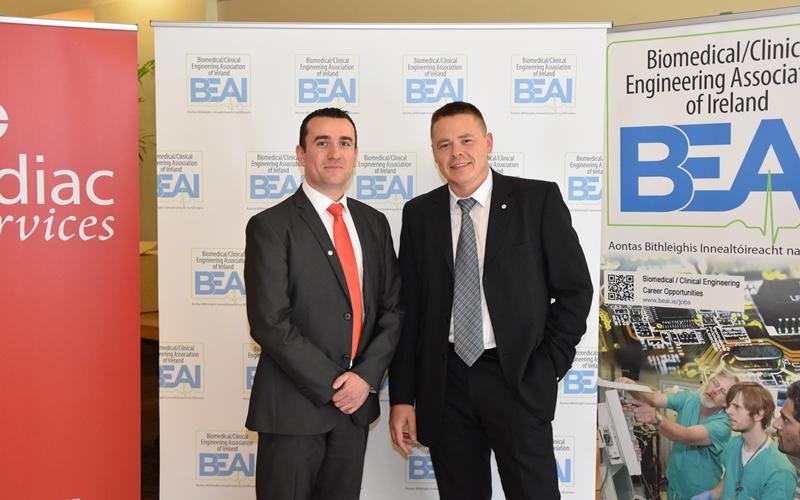Annual Scientific Conference 2016
‘Hospitals Without Walls’: BEAI Annual Scientific Conference 2016
When reviewing our yearly conference, we ask ourselves ‘how can we measure the success of the conference?’ Attendance, educational importance, engagement and networking, and future interest in BEAI events? Well, it’s safe to say that the BEAI Annual Scientific Conference 2016 was definitely a success
We were honoured with great speakers, great presenters and the opportunity to see a huge range of exciting technology.
The theme of the conference, ‘Hospitals Without Walls’, really inspired and guided the conversation – formal and informal. The theme was chosen as a vehicle to help us highlight the role of technology in facilitating care delivery for patients without constriction. In a time of increasing pressures on the system, in terms of waiting lists, high attendances and an ageing population, can we ensure the highest quality of care is provided to all patients, while also decreasing unnecessary stays in high-dependency centres of our acute system?
Technology: the future of healthcare
Bas Van Breugel, director of sales and market development services at Philips Health Systems, spoke to the audience about the evolution of ‘connected health’ bringing us up to and beyond the present day. He presented on the range of integrated medical technology systems currently in place and being managed by biomedical engineers. These systems allow healthcare professionals many opportunities for data capture, delivery and analysis – there are, however, risks alongside the advantages. Bas also discussed the European perspective on systems in general and cybersecurity, providing recent examples of issues faced by healthcare institutions in Europe.
It was great that Richard Corbridge, chief information officer, Health Service Executive (HSE), in Ireland and chief executive officer for eHealth Ireland) took time out of his challenging schedule to talk to the BEAI on the theme of the ‘liquid hospital’. Richard spoke about the importance of electronic information in meeting the challenges of healthcare and set out the milestones that the health service needs to march through to extract maximum value from digital health information.
Education from the top down
Dr John Sandham, CEO of TBS GB Ltd, previously spoke at the BEAI conference in 2014. Having struck a chord with many in the audience at that time, we invited John to speak again. He did not disappoint. John noted that, while senior politicians and healthcare executives accept that healthcare technology can assist with transformational improvements, we need to educate funders to understand that by using modern equipment and software, and artificial intelligence (AI) software systems, we can access the data, analyse the data, and put 24/7 high-level nursing care at every bed, thereby, reducing pressures on nurses and doctors and improving discharge decision-making.
The BEAI was delighted to welcome Michael Ross to speak at the conference 2016. Michael is the head of medical technical services for the Southern Health and Social Care Trust in Northern Ireland, a post he has held since 2006, with responsibility for clinical engineering in five sites across the trust. Michael provided the audience with an insight into how clinical engineering has developed north of the border and outlined some of the challenges in his role. Unsurprisingly, these are some of the same challenges we have, with greater service demands and shrinking budgets.
Managing hospital equipment outside the hospital
Paul Lowe, manager of the clinical engineering team at Beaumont Hospital and dialysis expert extraordinaire, spoke about the evolution of home dialysis, an approach to technology in healthcare, which is now in vogue, but which was also in vogue 40 years ago. In the meantime, machines have shrunk, safety and monitoring and machine reliability have all improved hugely. It was interesting to hear how an old idea – re-invented, using modern technology can be so powerful in supporting patients outside the hospital walls and normalising life as much as possible.
Liam Hackett, head of clinical engineering in Tullamore and surrounding hospitals, and national lead for community medical equipment management, has a wealth of experience in managing medical equipment outside of the walls of the hospital – at satellite centres and in nursing homes. Liam shared his experience in developing the processes to ensure good governance around the management of equipment when it is not within the walls of the hospital. Liam highlighted the importance of planning for the future, not just meeting the demands of today.
BEAI presentation awards
Pierluigi Ravese is a clinical engineer at St James's Hospital. Pierluigi treated the audience to an insight into the development of a technical solution for a clinical problem: the distance-based walk test is one of the most adopted methods for evaluating the physical capacity of patients with respiratory disease. But, during the test, the patient needs to pull a wheeled oxygen cylinder and a measuring wheel to measure the distance ambulated. Pierluigi developed a better way using bench-developed electronics based on a Raspberry-pi. The system measures distance walked – it’s not a ‘medical device’ but it is a very important support in monitoring a compromised patient’s walking distance and monitoring progress.
Pierluigi was a worthy winner of the BEAI Medal for best presentation.
Clancy Carrerra Bage was presented with the BEAI student prize for her presentation outlining her role in a research project to demonstrate and validate the clinical potential of an ammonia breath monitoring (AmBer) device for monitoring patients with chronic kidney disease at St Vincent’s University Hospital (SVUH). Clancy is a final year medical student at University College Dublin (UCD) School of Medicine and Medical Science.
Voice of experience
A founding member of the BEAI, Peter Grainger, presented on the ongoing work within the Dublin Midland Hospital Group (DMHG) medical device committee. Peter is the DMHG lead for medical devices equipment in the HSE, vice chair for the Irish national medical devices equipment management committee and head of the Department of Clinical Engineering, Medical Physics, Facilities, Medical Illustrations and Special Projects in Naas General Hospital.
The DMHG has been particularly active in developing group-wide medical equipment management initiatives. Peter outlined some of these initiatives and highlighted his perception of the benefits of having a national medical device equipment committee (MDEMC) structure with individual groups supporting local hospital committees.
Solutions to meet patient needs
The BEAI was delighted to welcome Suzanne McDonald, healthcare practice lead with PricewaterhouseCoopers (PwC), to address the BEAI. Suzanne challenged the audience with her presentation entitled ‘Healthcare technology – change or die’.
And, that idea, perhaps, sums up the challenge to our health service today, and, arguably, is the conclusion to be drawn from all the presentations at the conference.
Suzanne highlighted the implications for patient safety and quality of service arising from technology adoption and discussed the convergence of the clinical engineering environments with traditional back-office healthcare solutions.
Importance of continuing professional development
Monica Fitzpatrick is the continuing professional development (CPD) officer within the health and social care professions for seven professional bodies, including the Academy of Clinical Science and Laboratory Medicine and the BEAI. Monica spoke to our audience about CPD, its importance and relevance, and how most of us more than surpass the CPD requirements of our profession, though sometimes we don't realise it or value it enough. Recording CPD is very important to us as professionals and all to our profession. Valuing our own CPD helps us to progress, to open our minds to new ideas and solutions to contribute to better healthcare delivery. We would encourage all members to use the BEAI website (www.beai.ie) for CPD purposes – future educational events can be booked, certificates are available for all CPD events attended, and CPD-logging capabilities will be available very soon.
Digital transformation in healthcare
As the day progressed, there was no dip in the quality of presentation. Our final speaker of the day spoke about 'the fourth industrial revolution: how technology will transform the way healthcare is delivered'. Mark Leftwich is the business marketing director for Philips in the UK (tasked with developing equipment and services for the HSE and the National Health Service (NHS), to both improve the quality of care provided, while reducing the associated costs) and had been due to speak. Unfortunately, Mark was unable to travel to the conference, but we were fortunate that Bas Van Breugel was available to present an overview on how Philips expects the industrialisation of care and personalisation of care to be enabled at scale through digital transformation.
Prizes
As we wrapped up the formal proceedings, the BEAI prizes were awarded:
BEAI Medal for best oral presentation – Pierluigi Ravese, St James's Hospital;
BEAI Medal for the best poster presentation – Bernard Murphy, Cork University Hospital;
BEAI Student Medal and cheque for best student presentation – Clancy Carrerra Bage, SVUH and UCD; and
BEAI award and cheque for best overall Spectrum article in 2016 – Asal Milad Al Haddad, AMNCH.
Acknowledgments
Our chair people: we would particularly like to thank our session chairpersons, who were extremely professional and knowledgeable on all topics discussed and ensured that all aspects of the presentations and Q&A sessions were effective and efficient. The session chairs were:
Mary Fitzsimons, epilepsy electronic patient record (EPR) Lighthouse Project;
Jasdip Mangat, Clinical Engineering, CESIG, IPEM UK;
Declan Murray, Clinical Engineering, Ireland East Group;
Linda Hendy, National Standards Authority of Irealnd (NSAI); and
John Adlington, Clinical Engineering, Tullamore.
Finally, and very importantly, we had a great social evening, night and next day!
The future is bright, it’s full of opportunity.
Looking forward to seeing you all at our BEAI Annual Scientific Conference 2017on Friday, September 29, 2017 at the Crowne Plaza Hotel, Santry, Dublin!
About Us
The Biomedical / Clinical Engineering Association of Ireland (BEAI) is a company limited by guarantee and not having a share capital. Company Registration no. 484921.
Stay Connected on:
Important Information
Contact Us
For general information, including registration, please contact us at:
- 8 Priory Office Park, Stillorgan Road,
- Blackrock, Co Dublin, Ireland,
- A94 EE95

